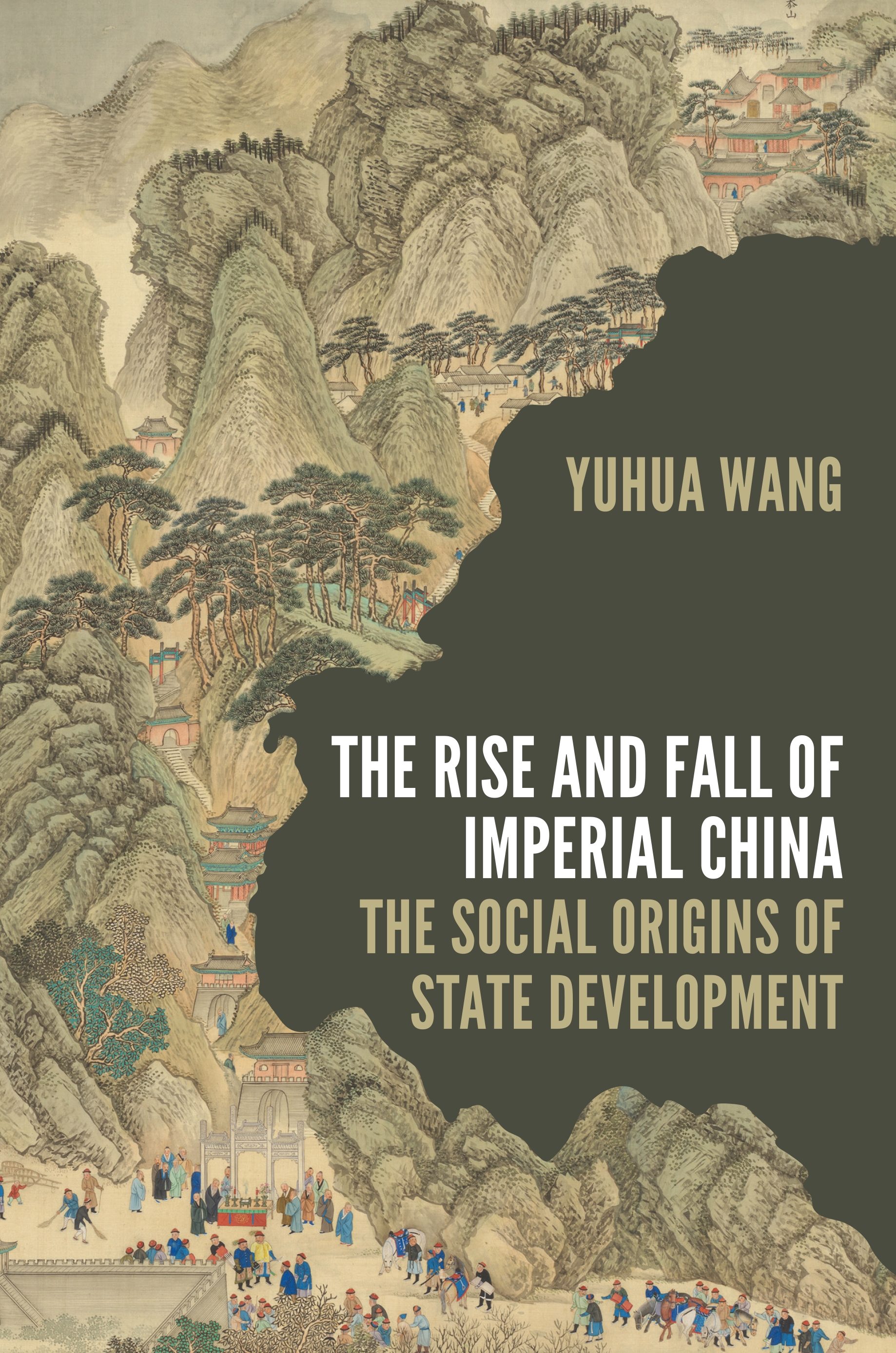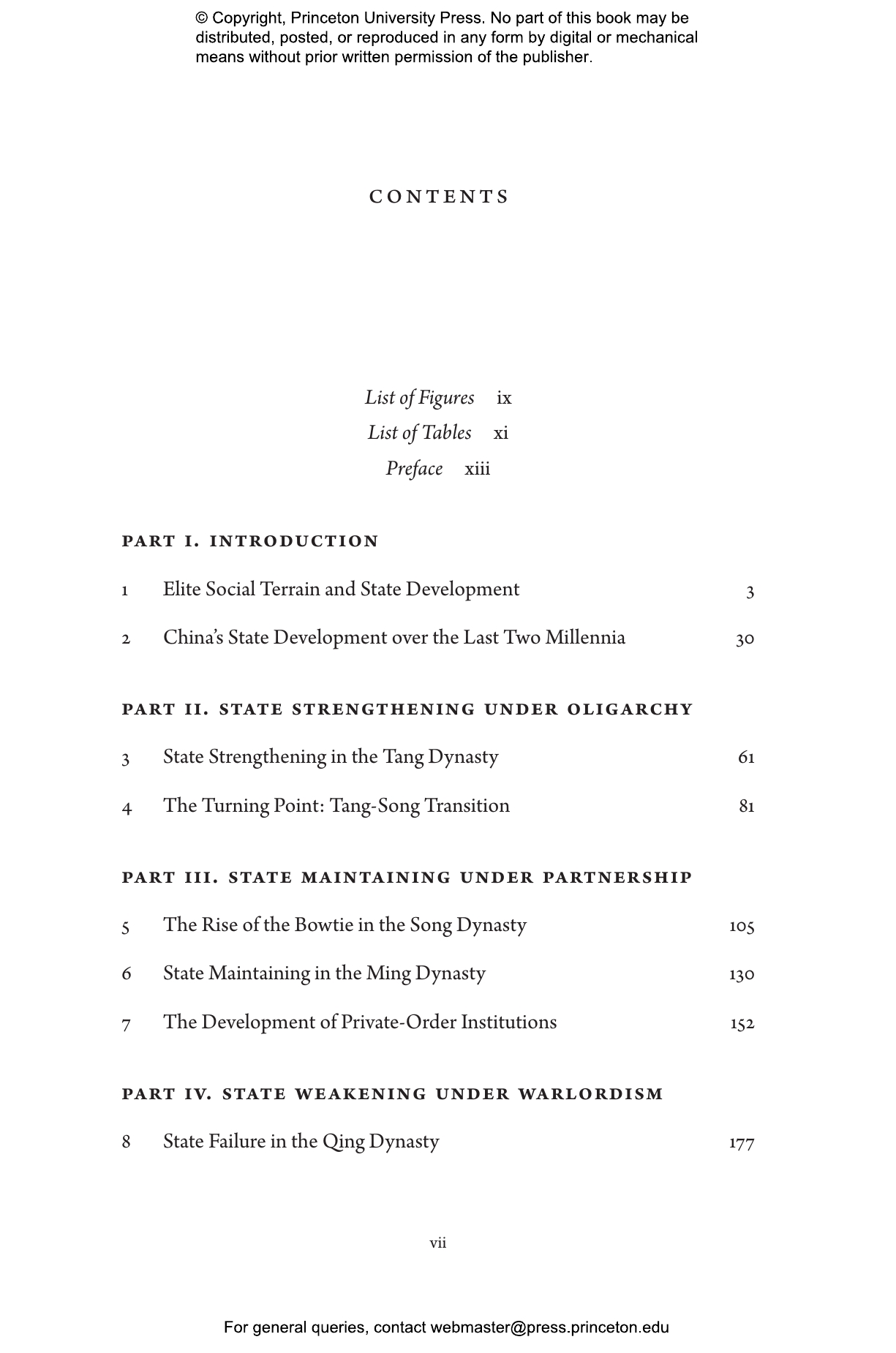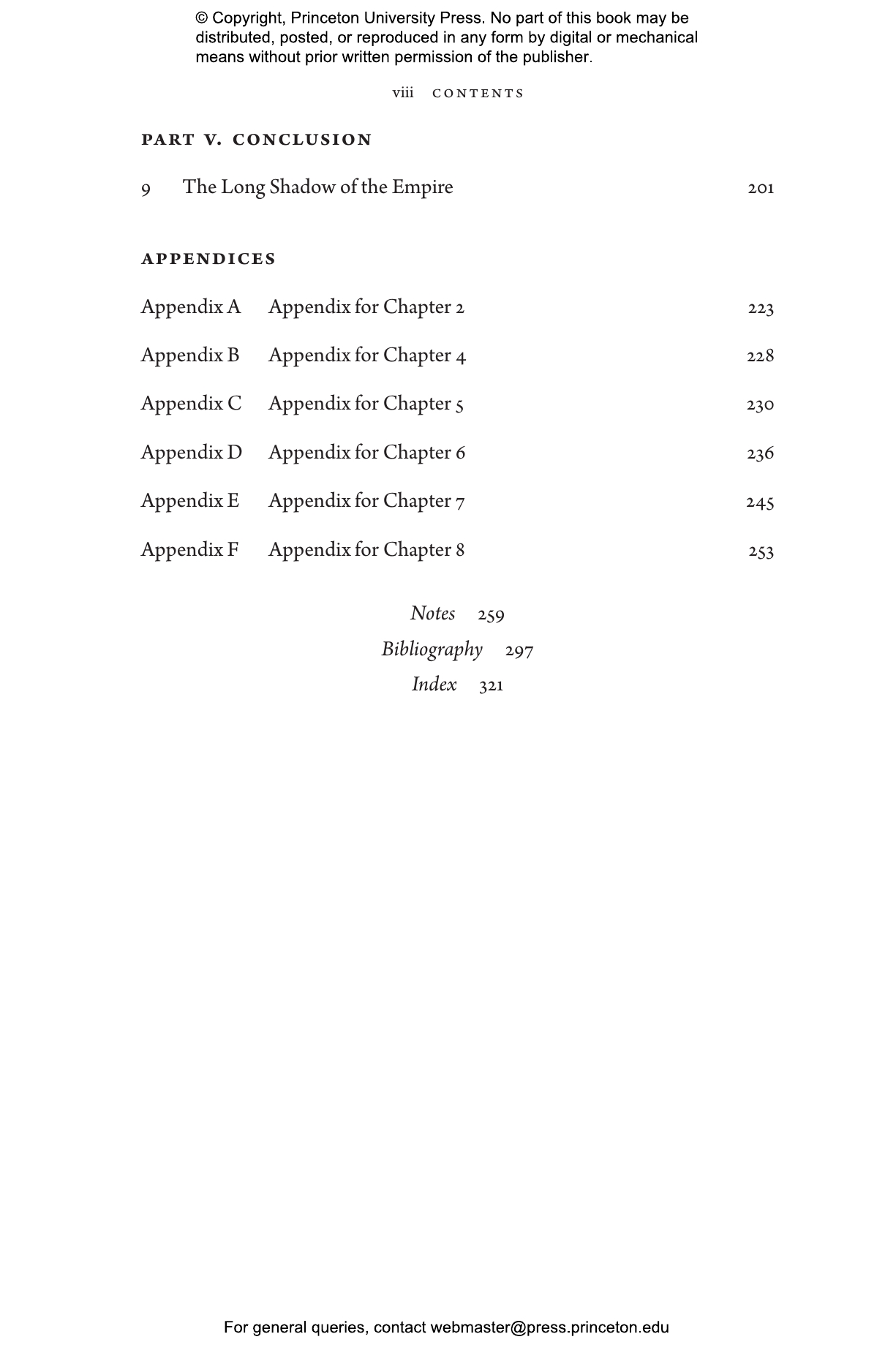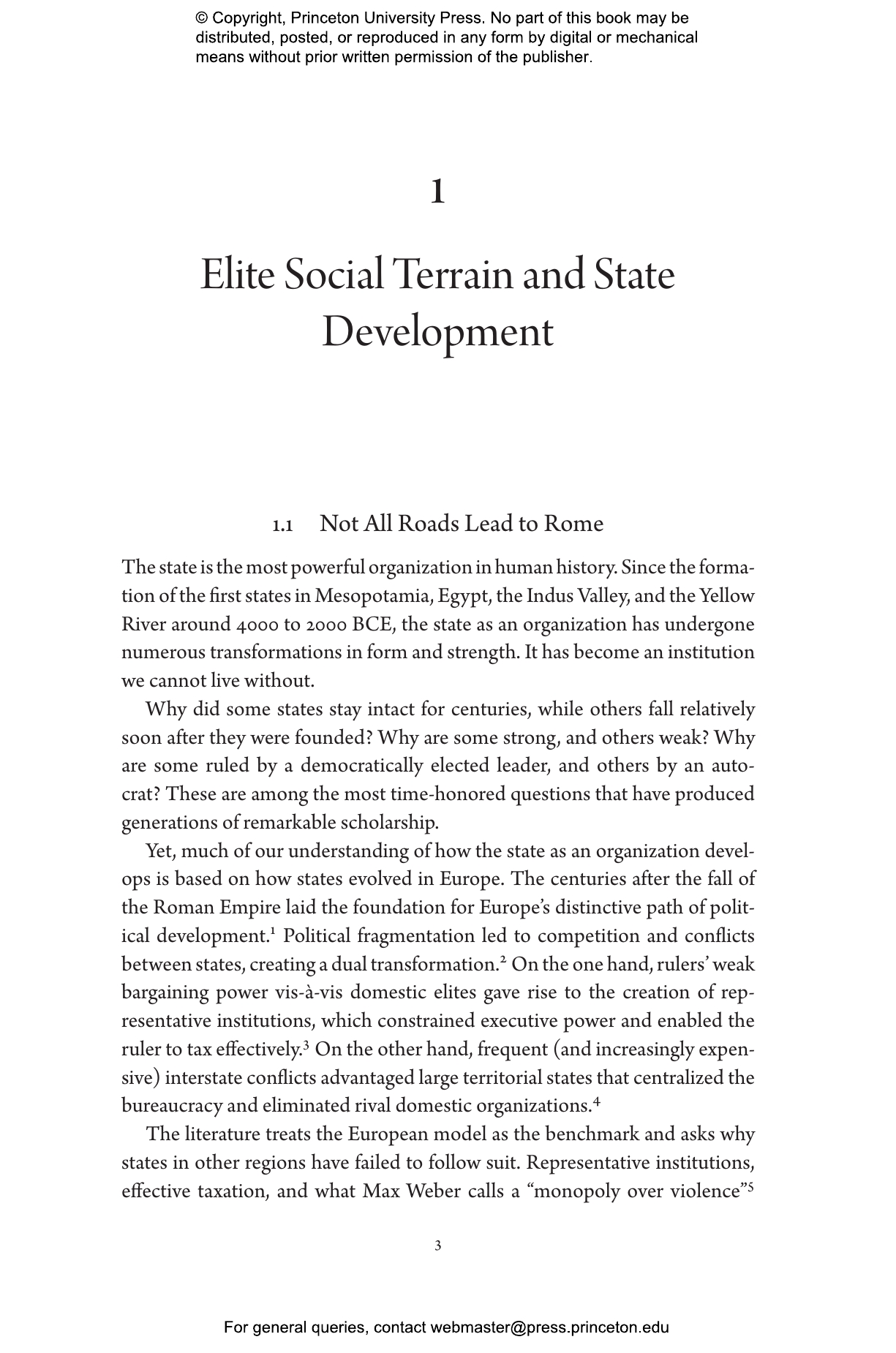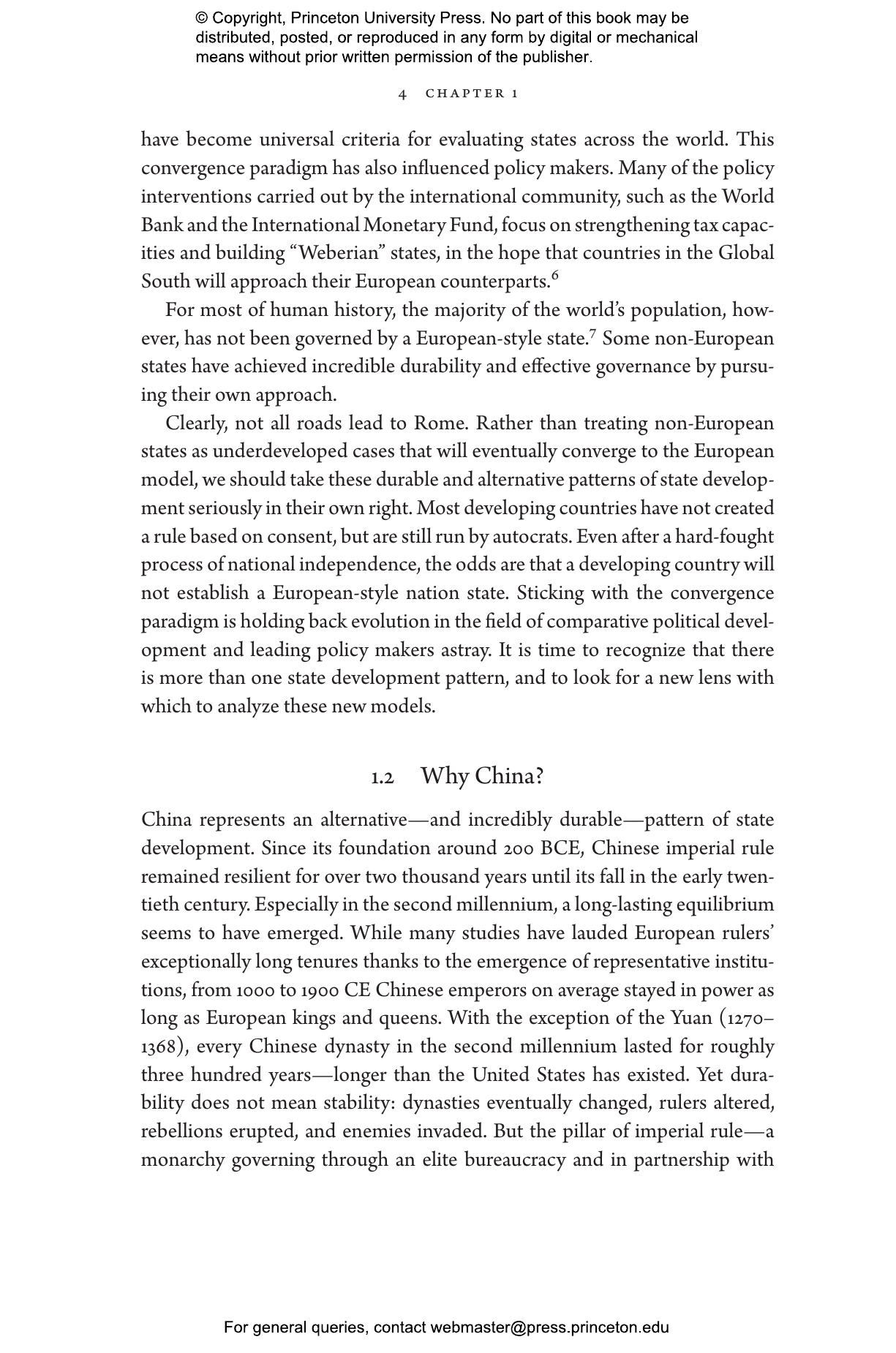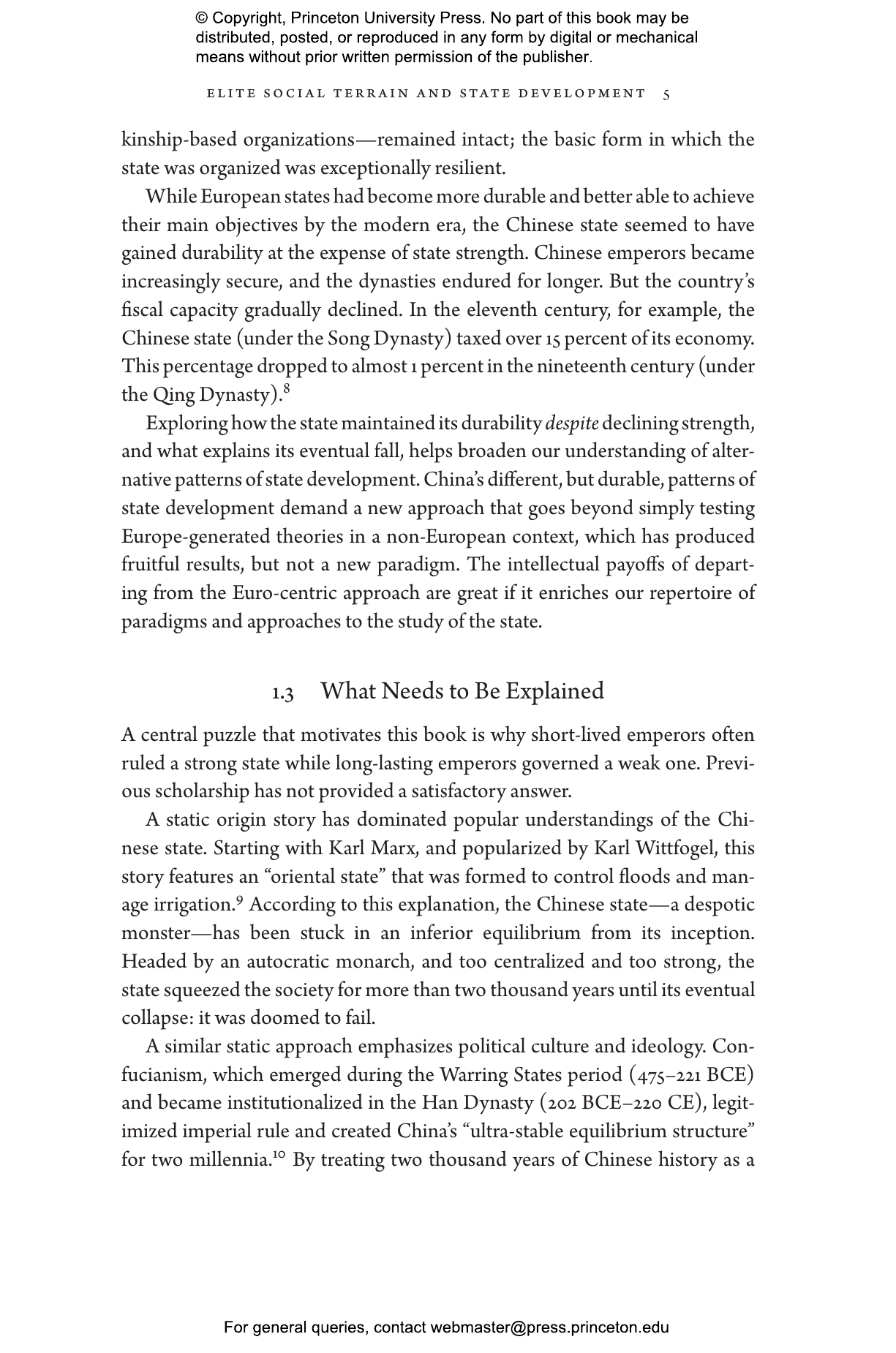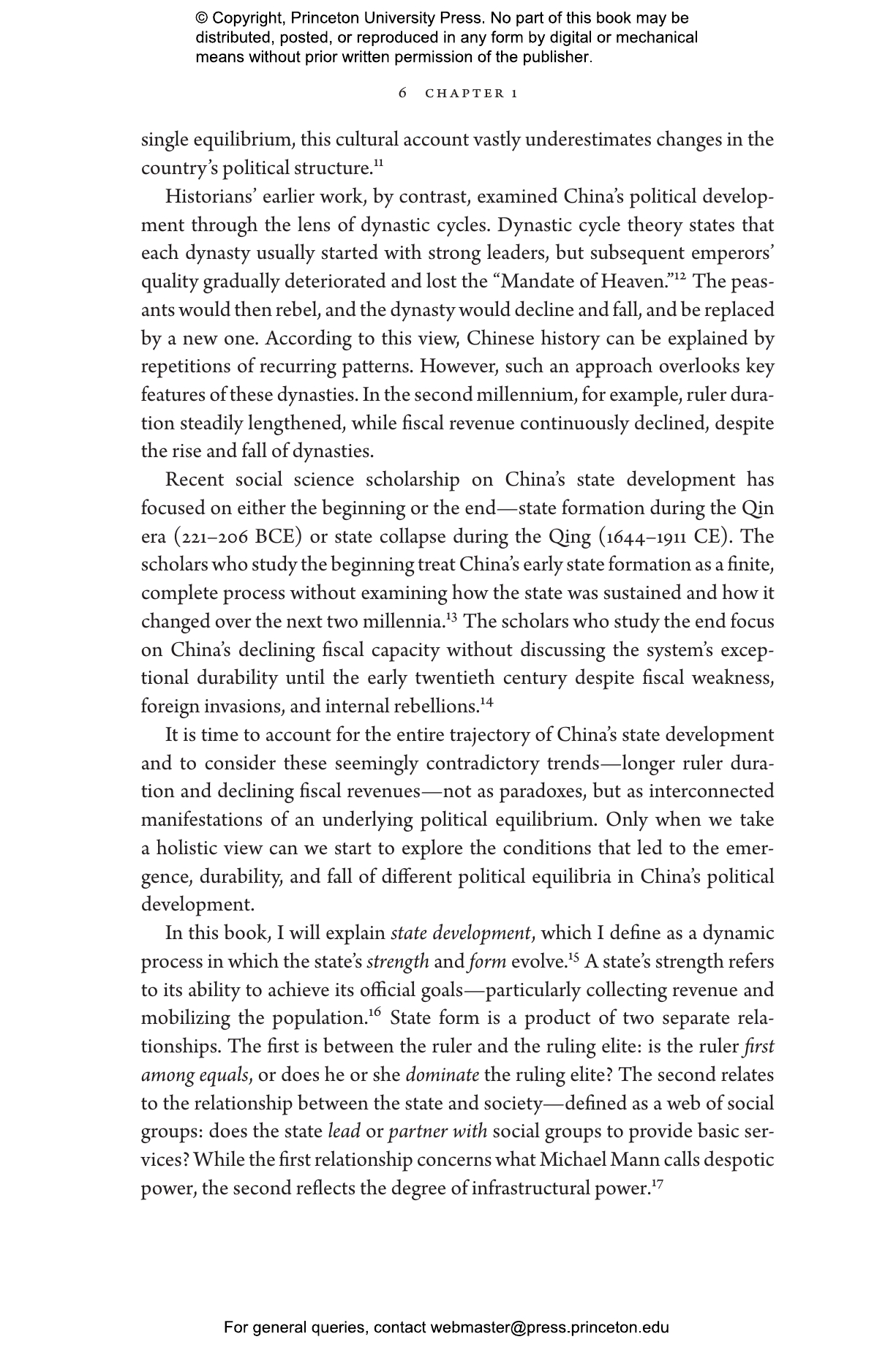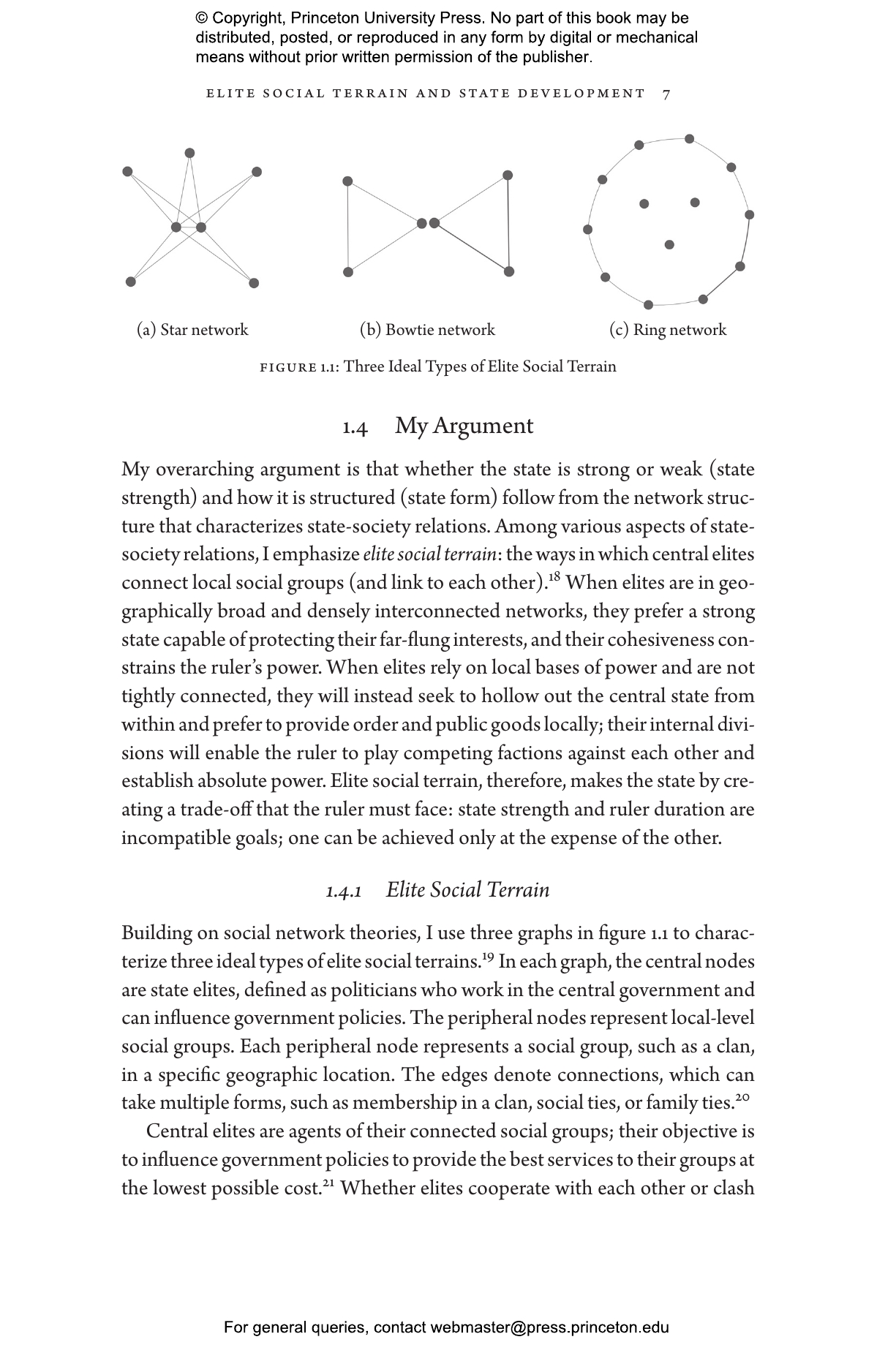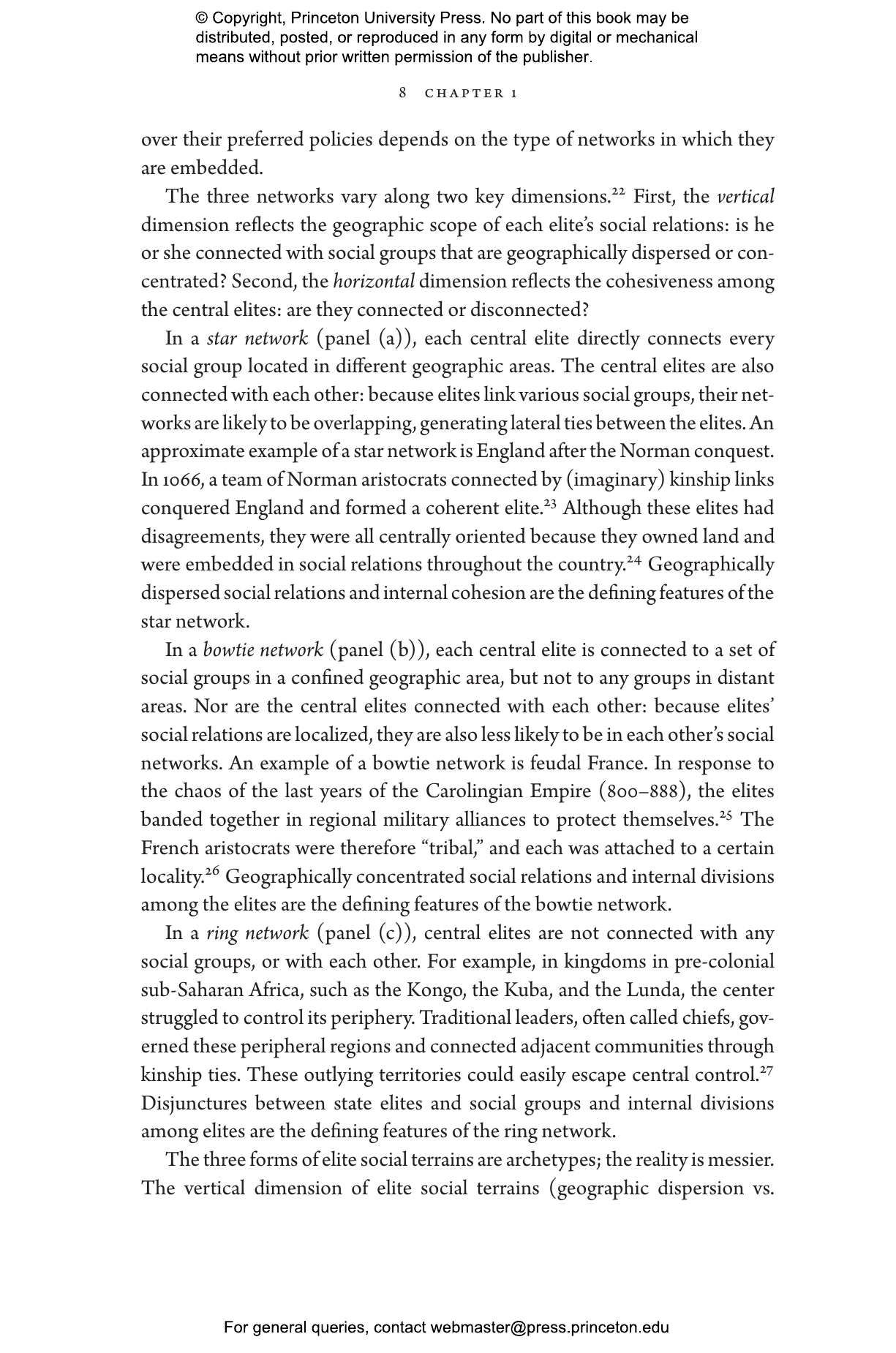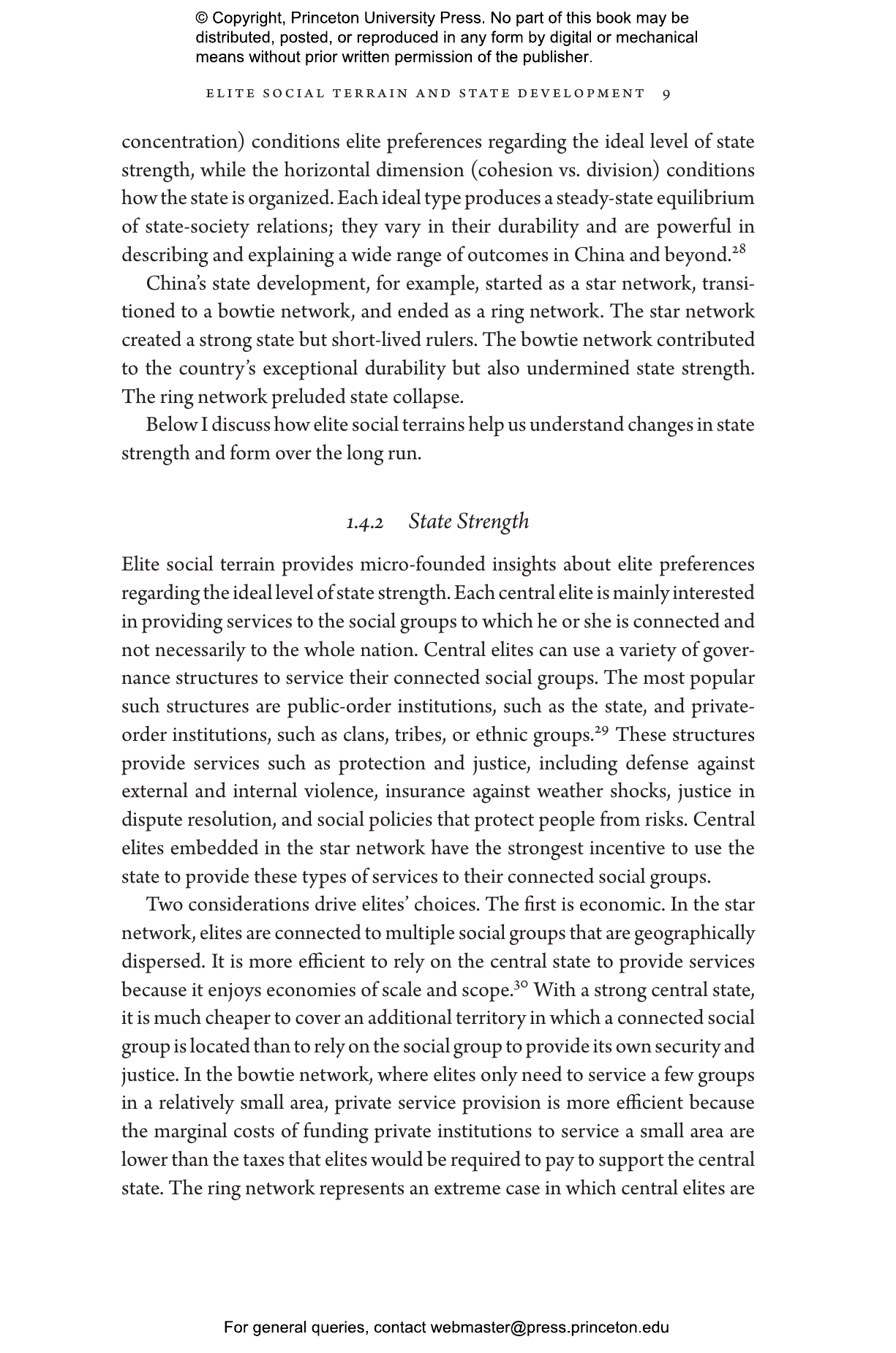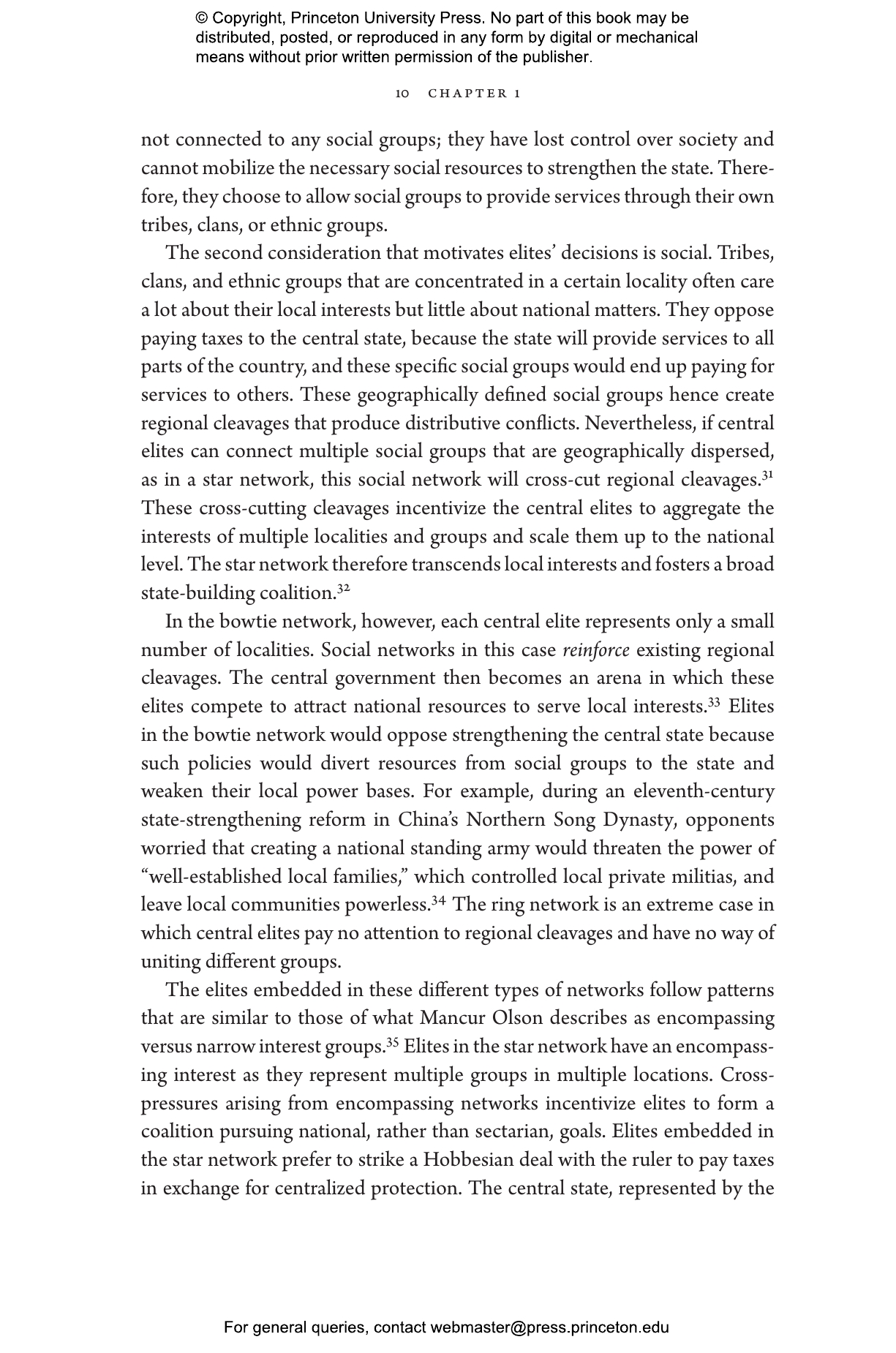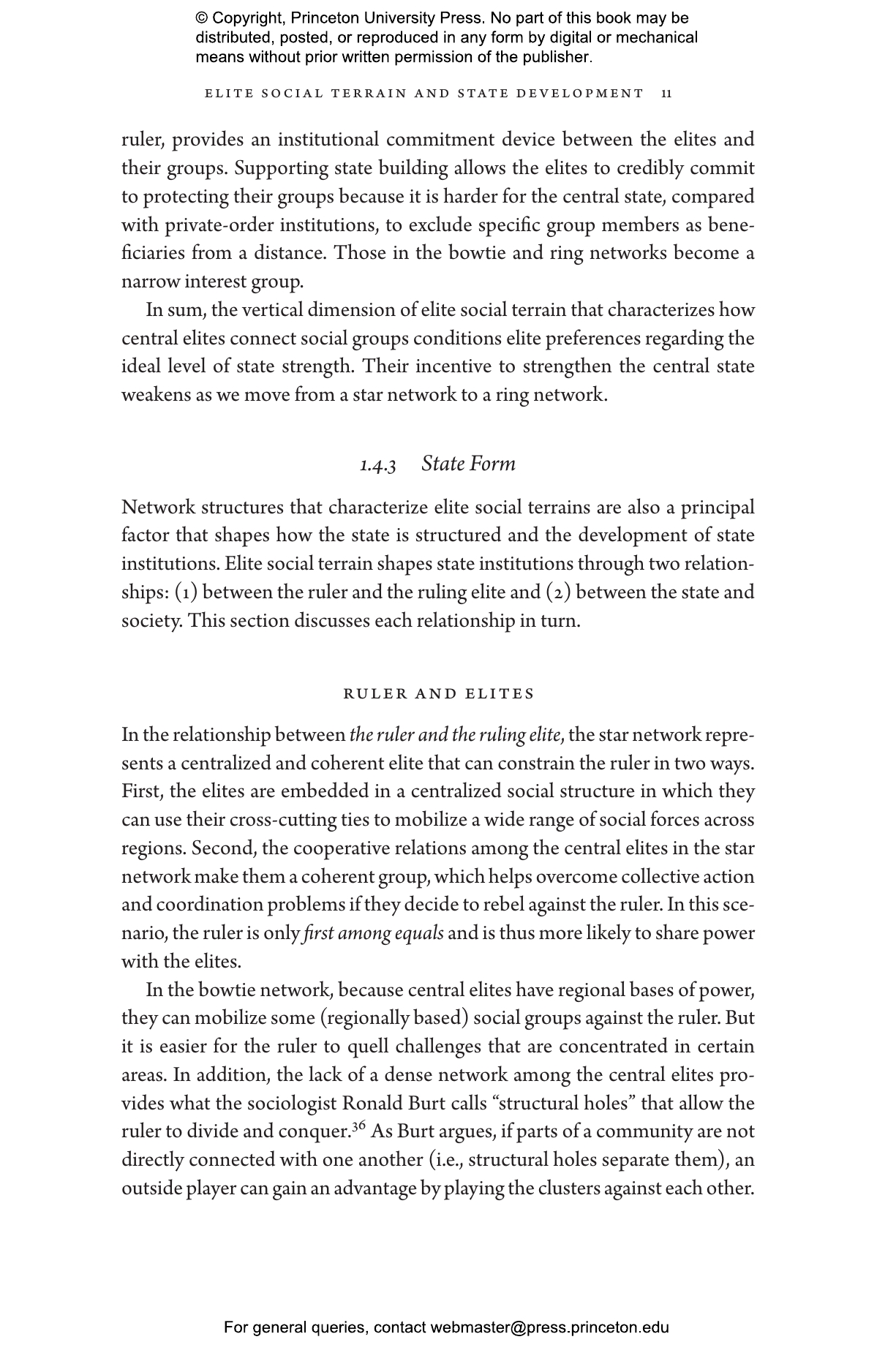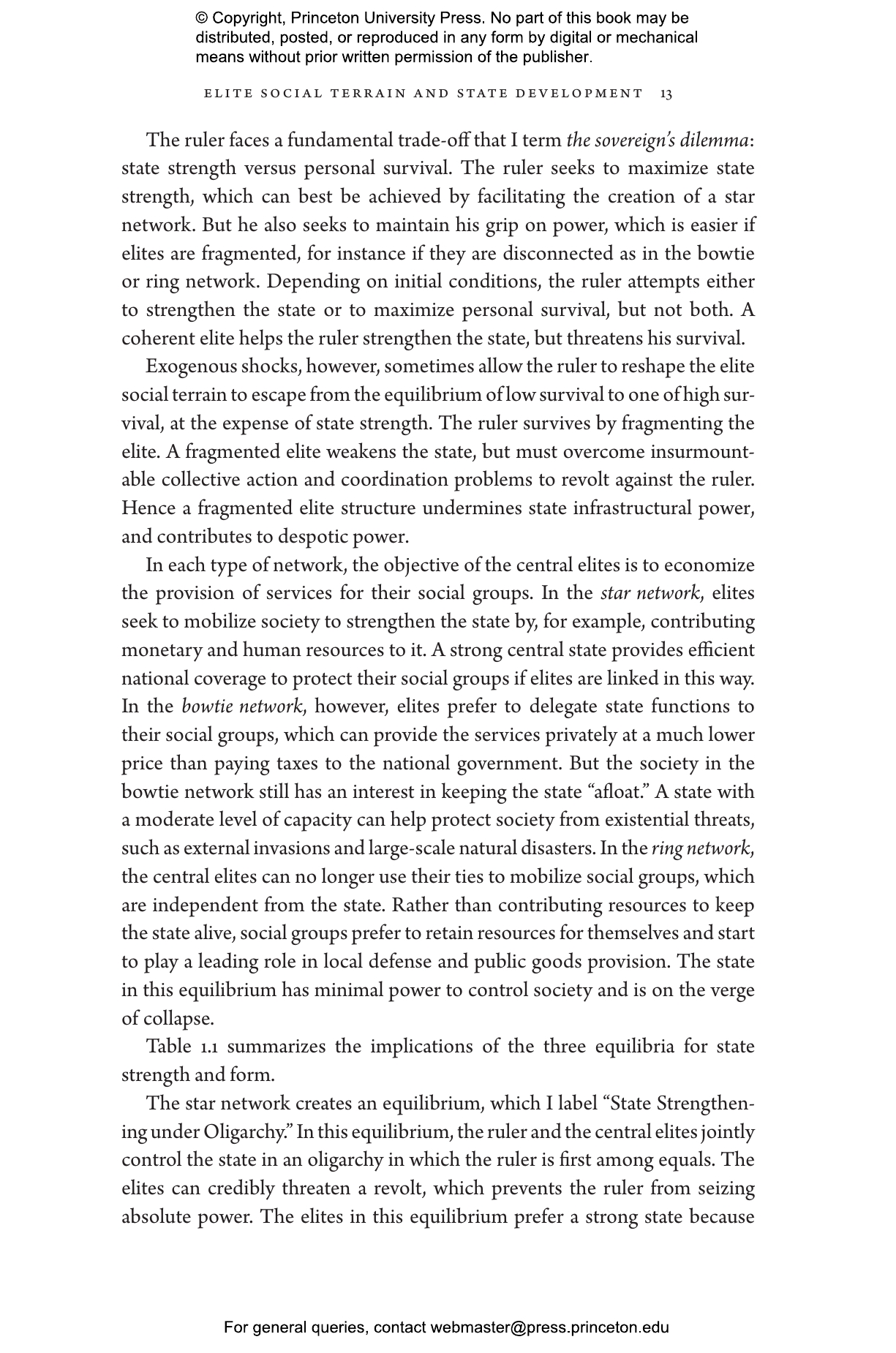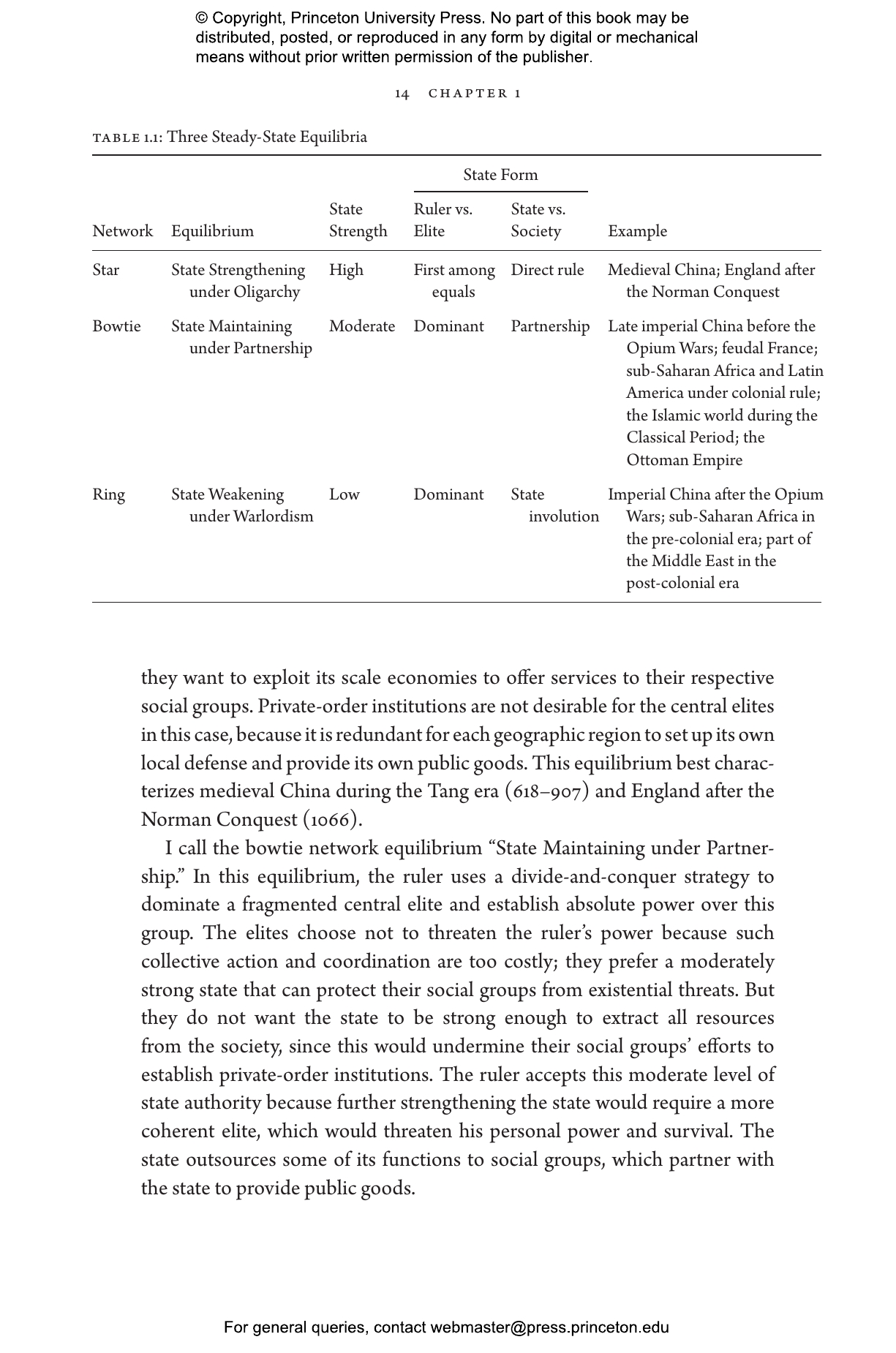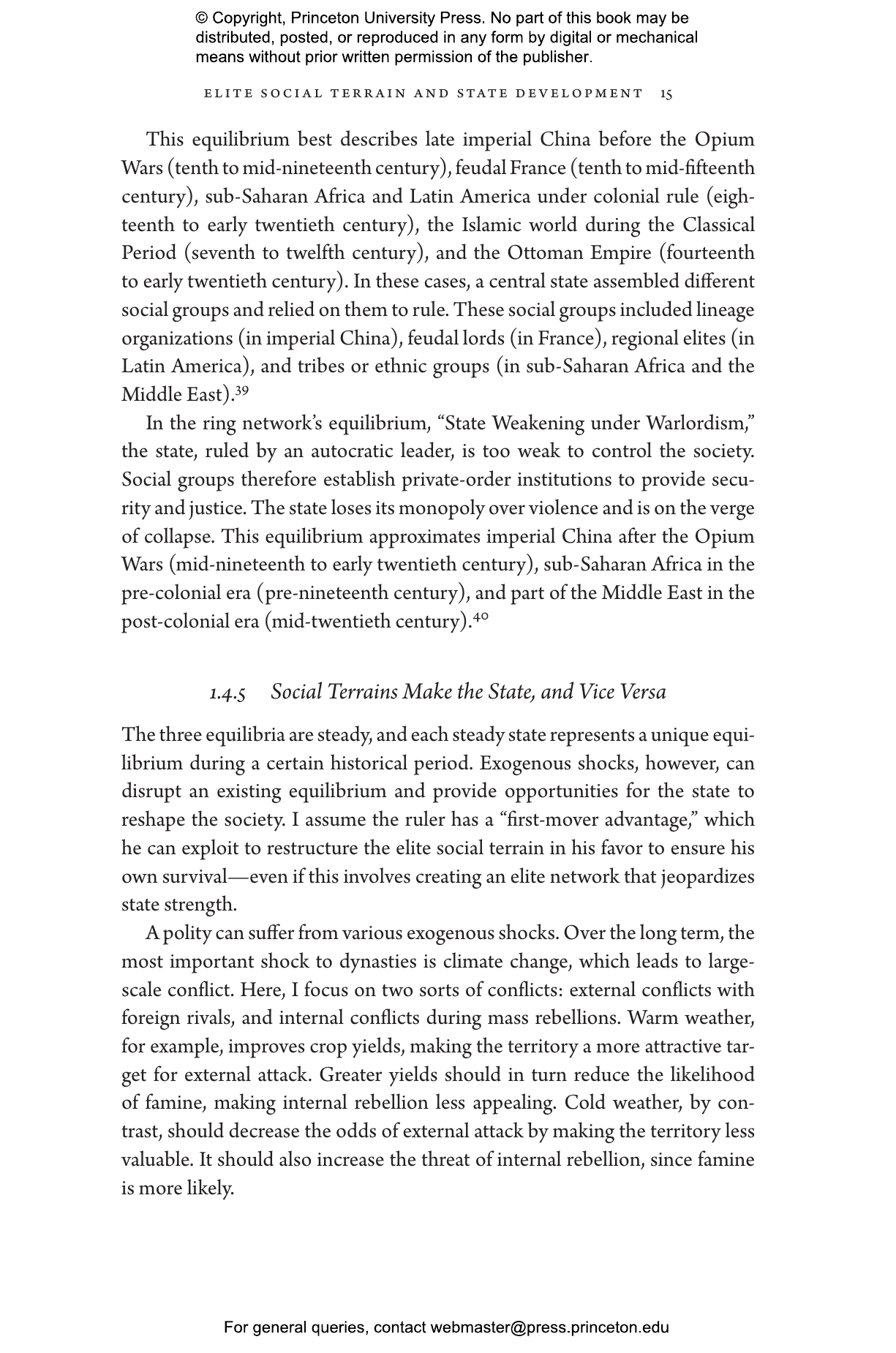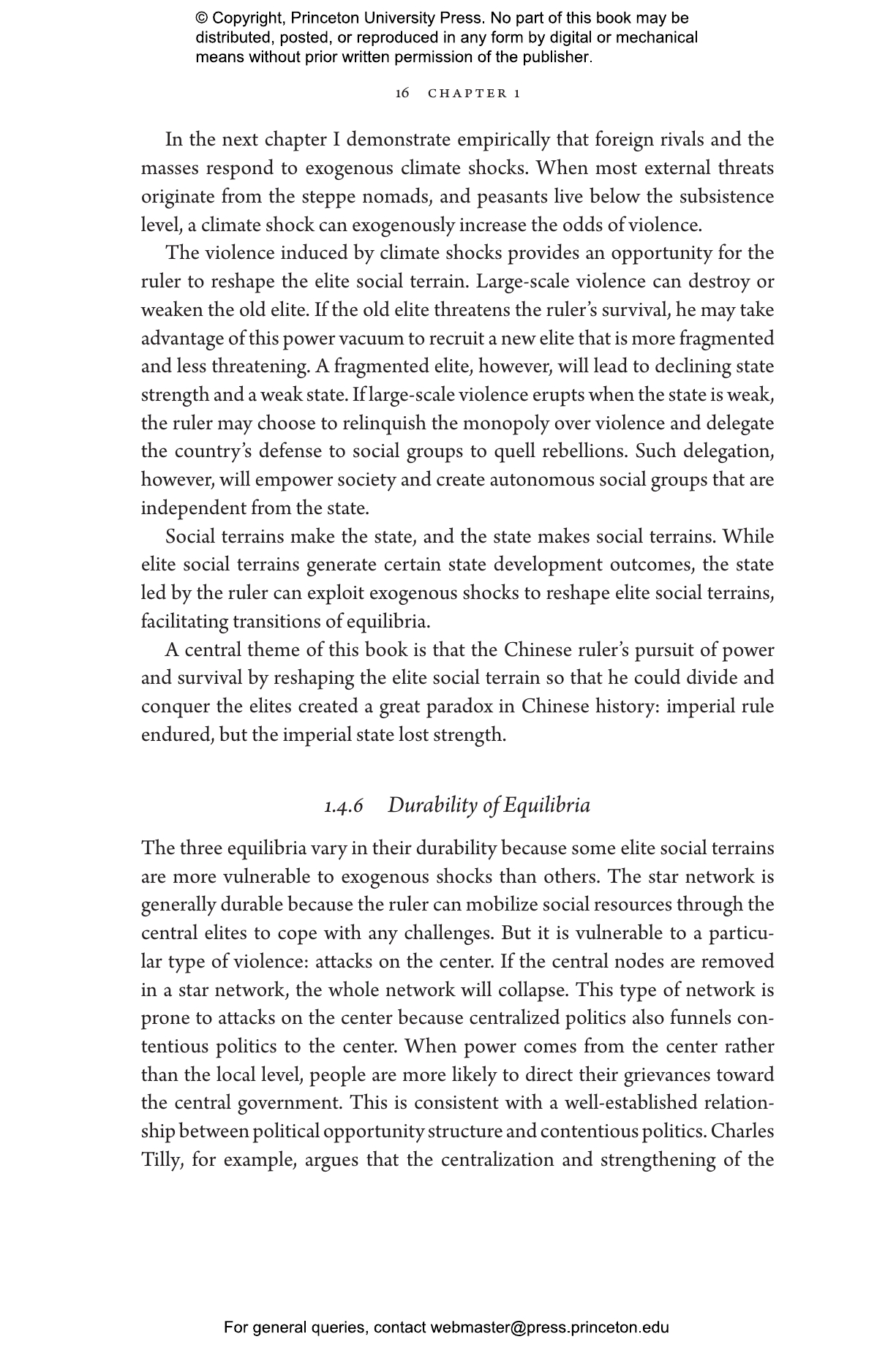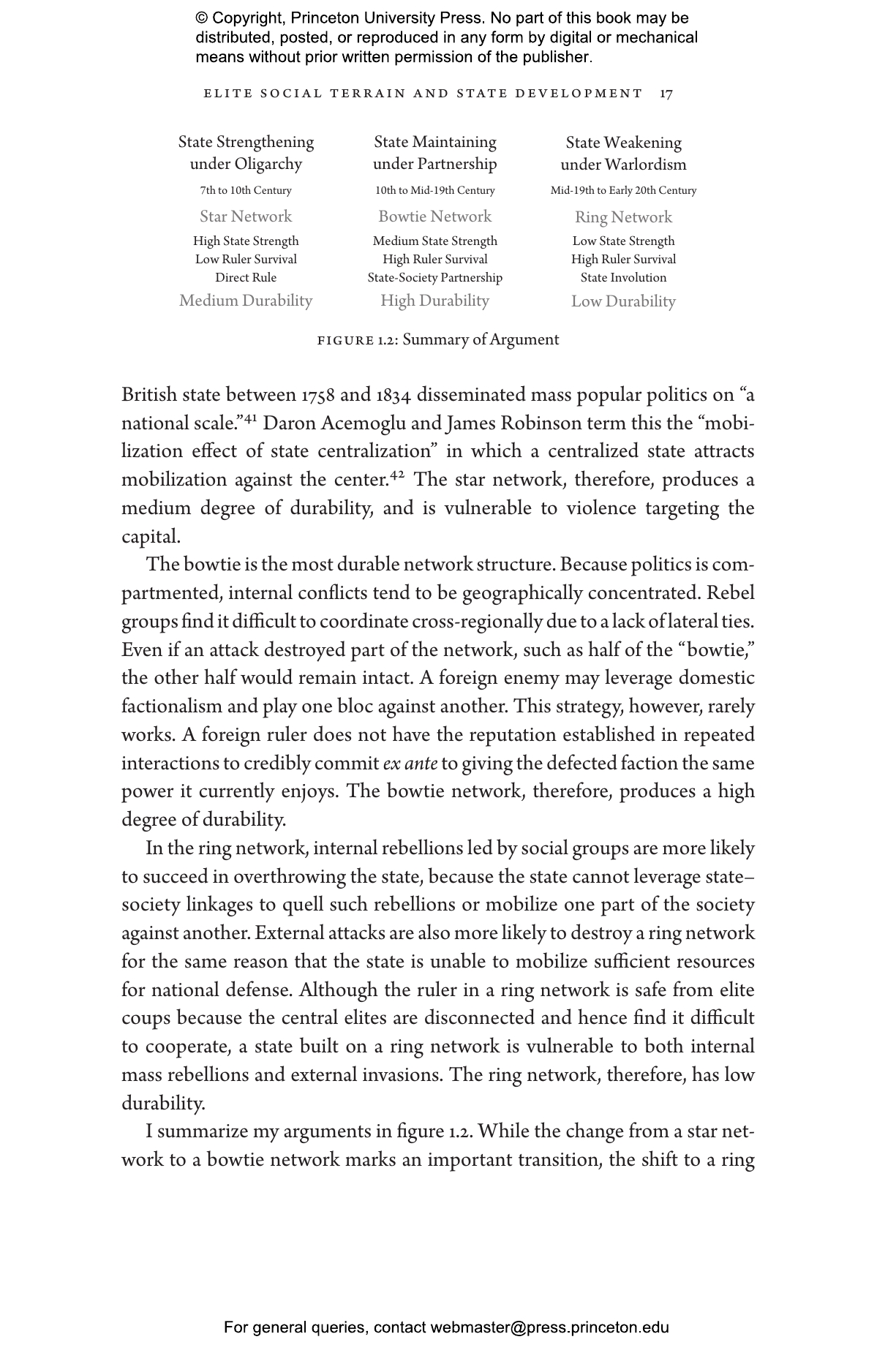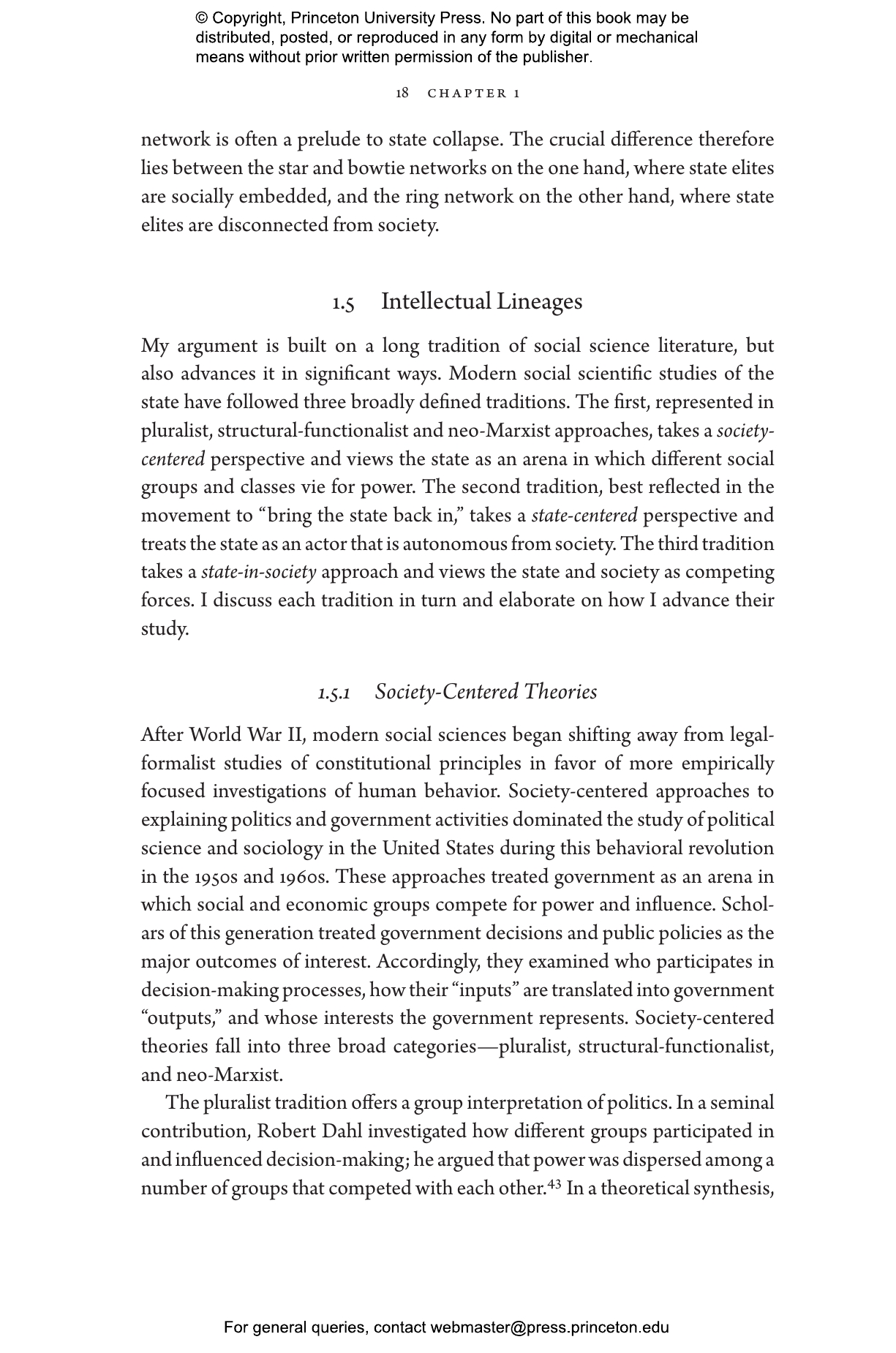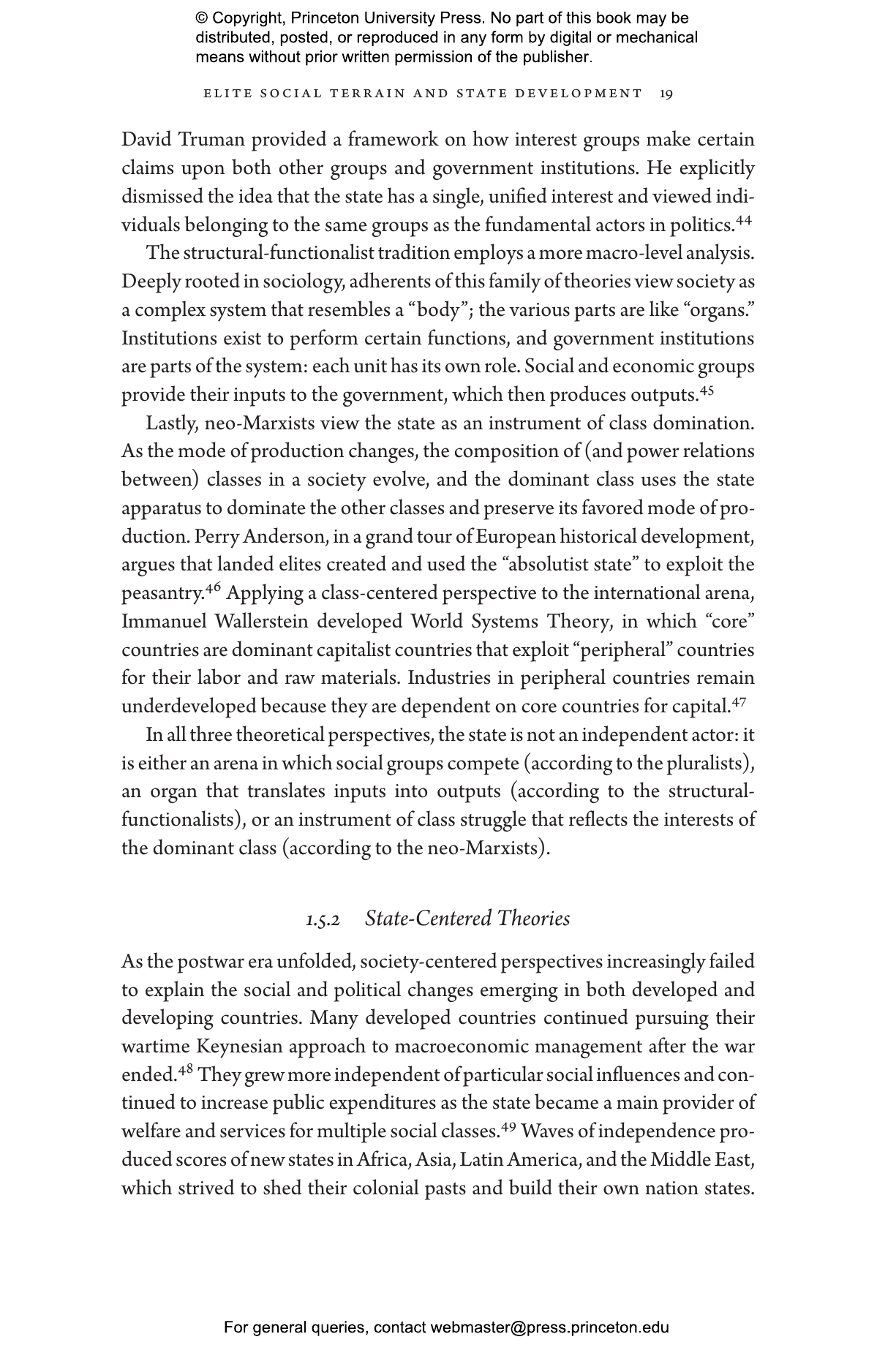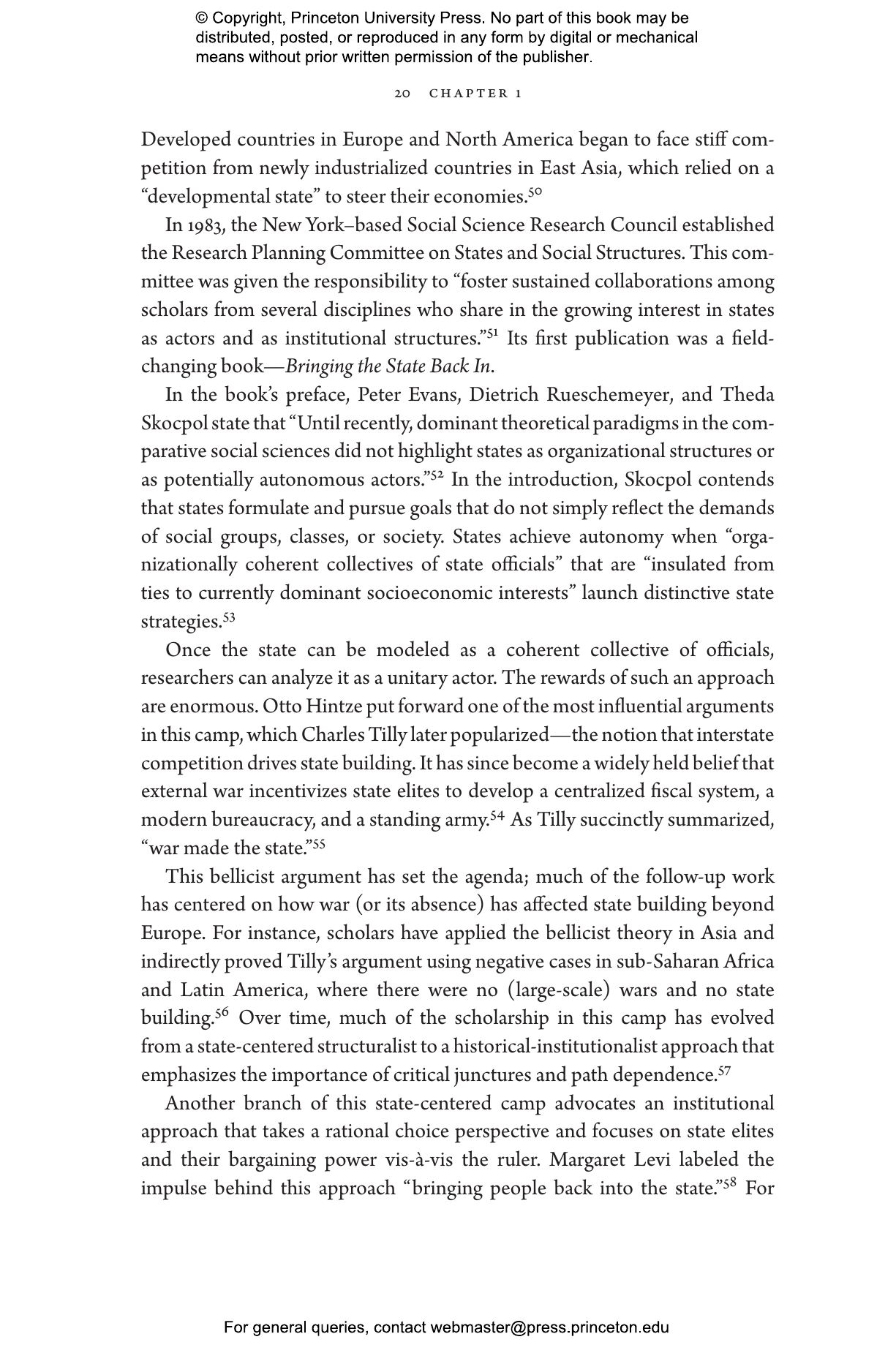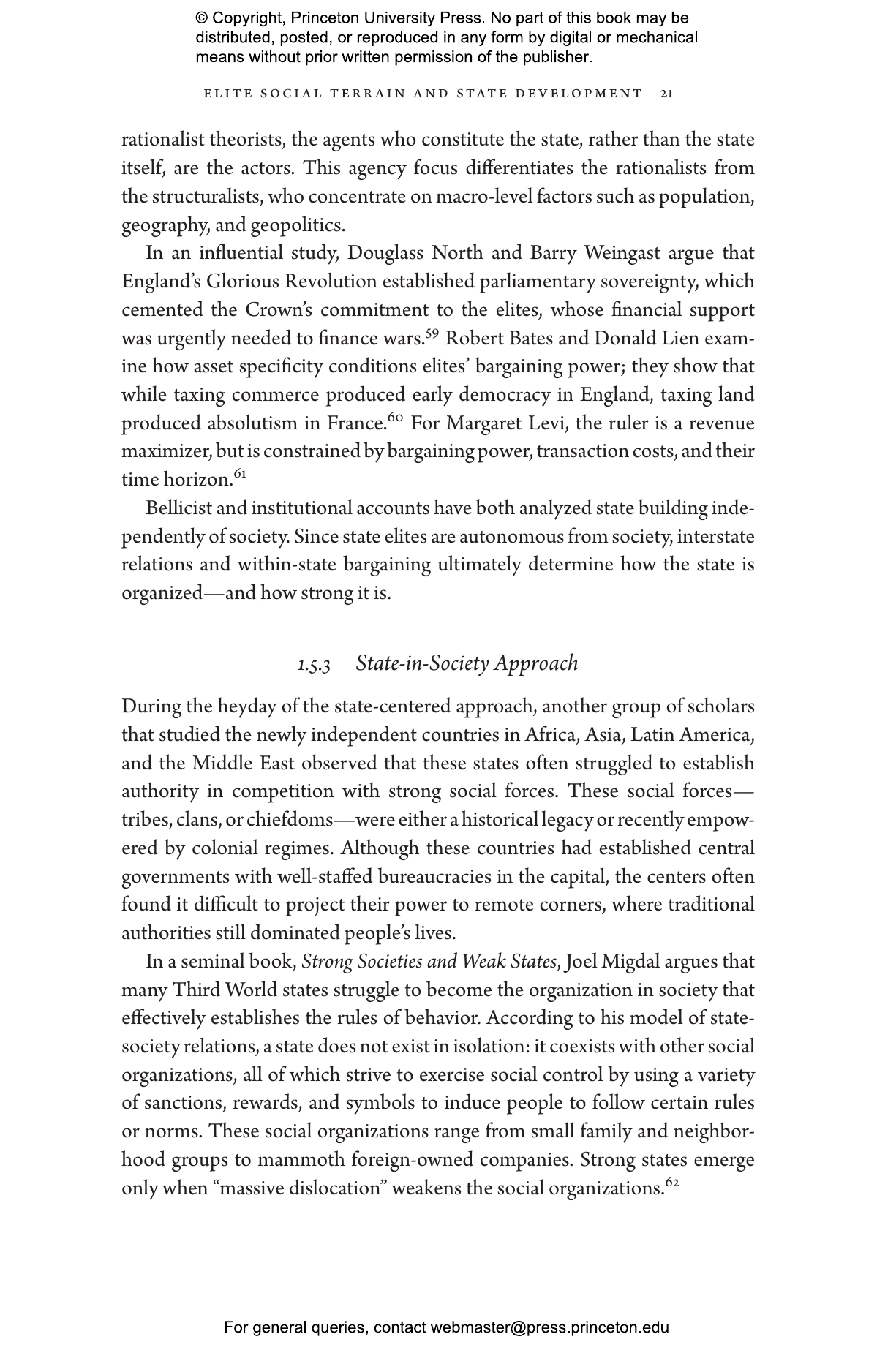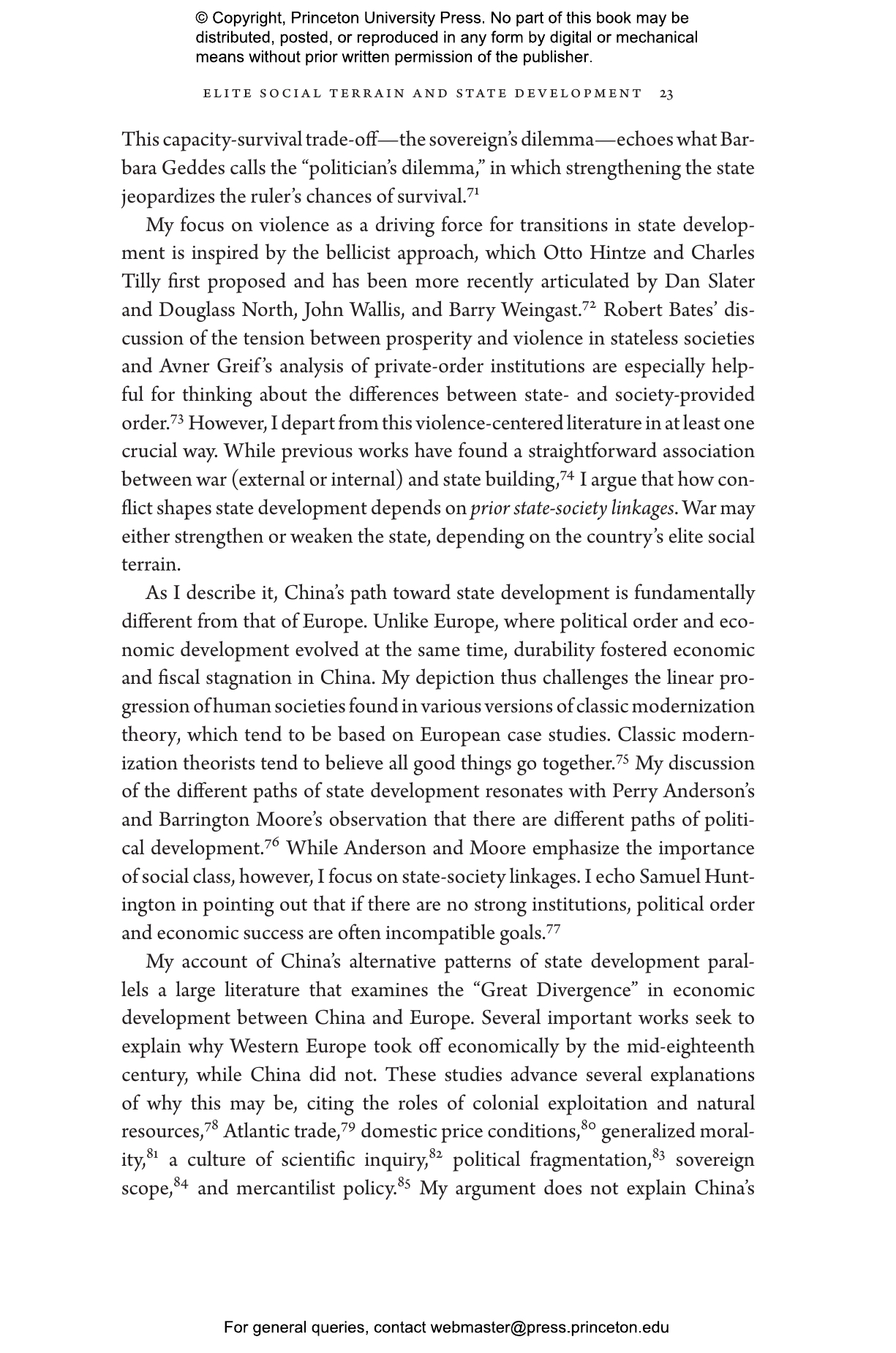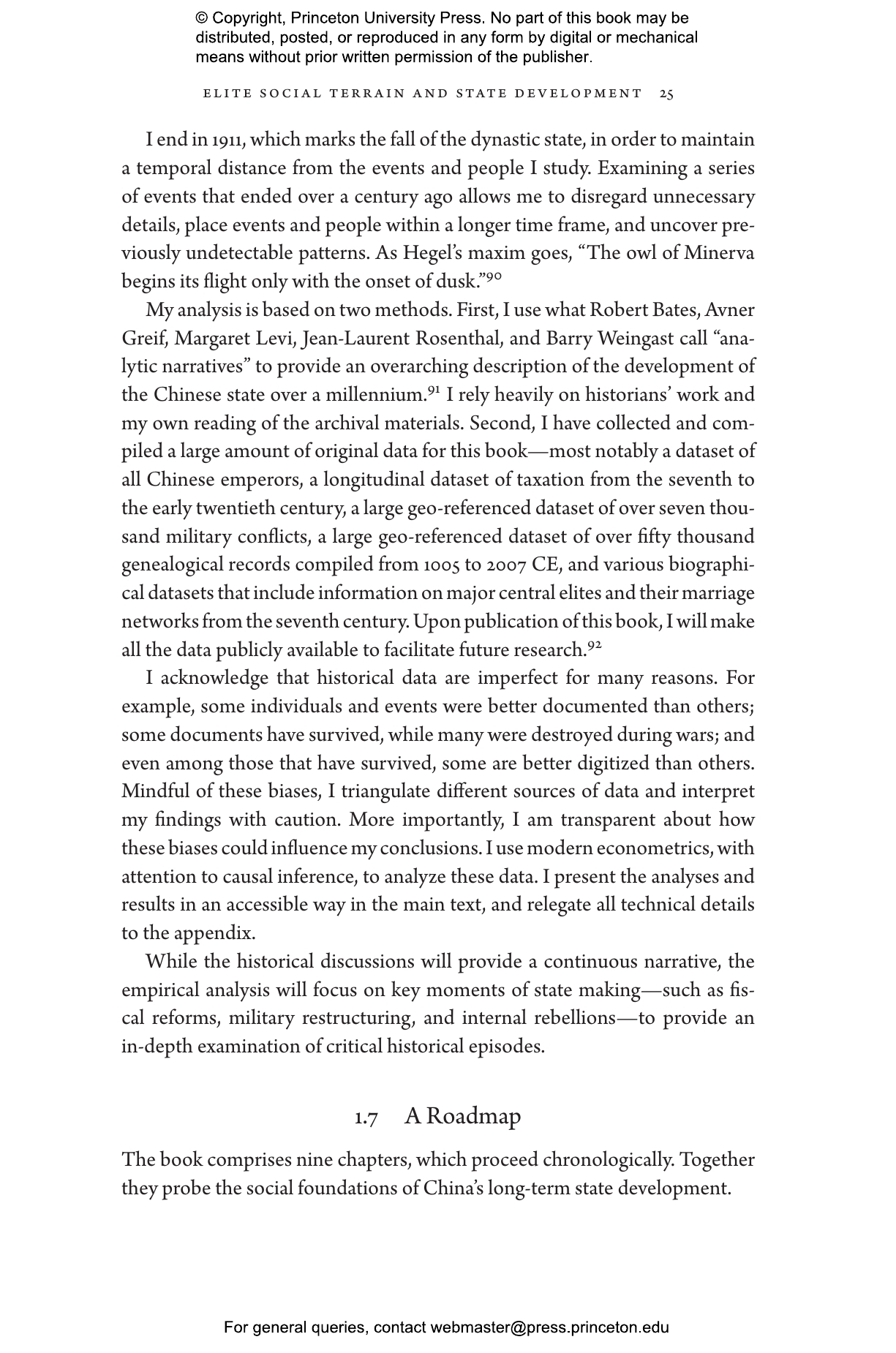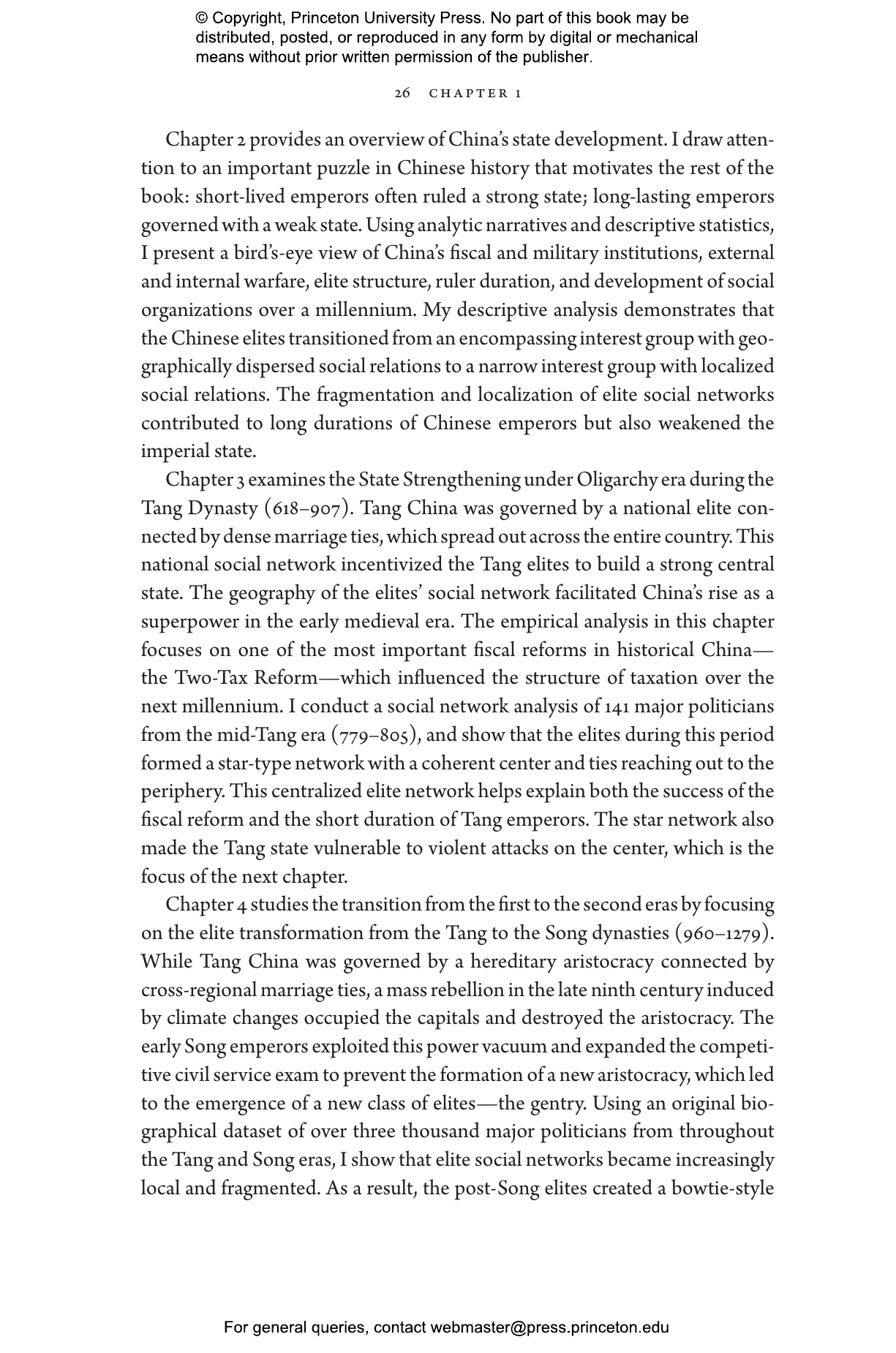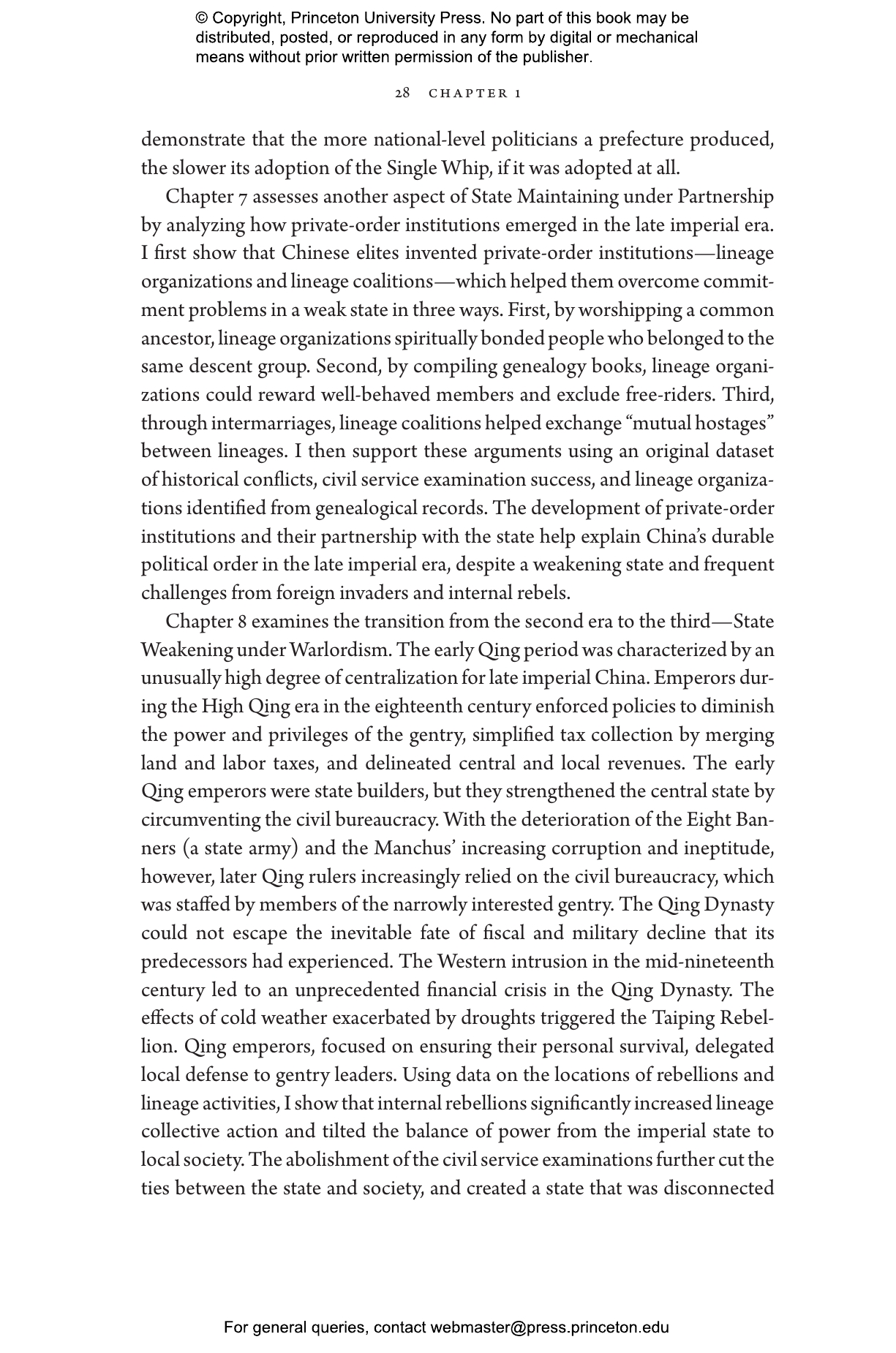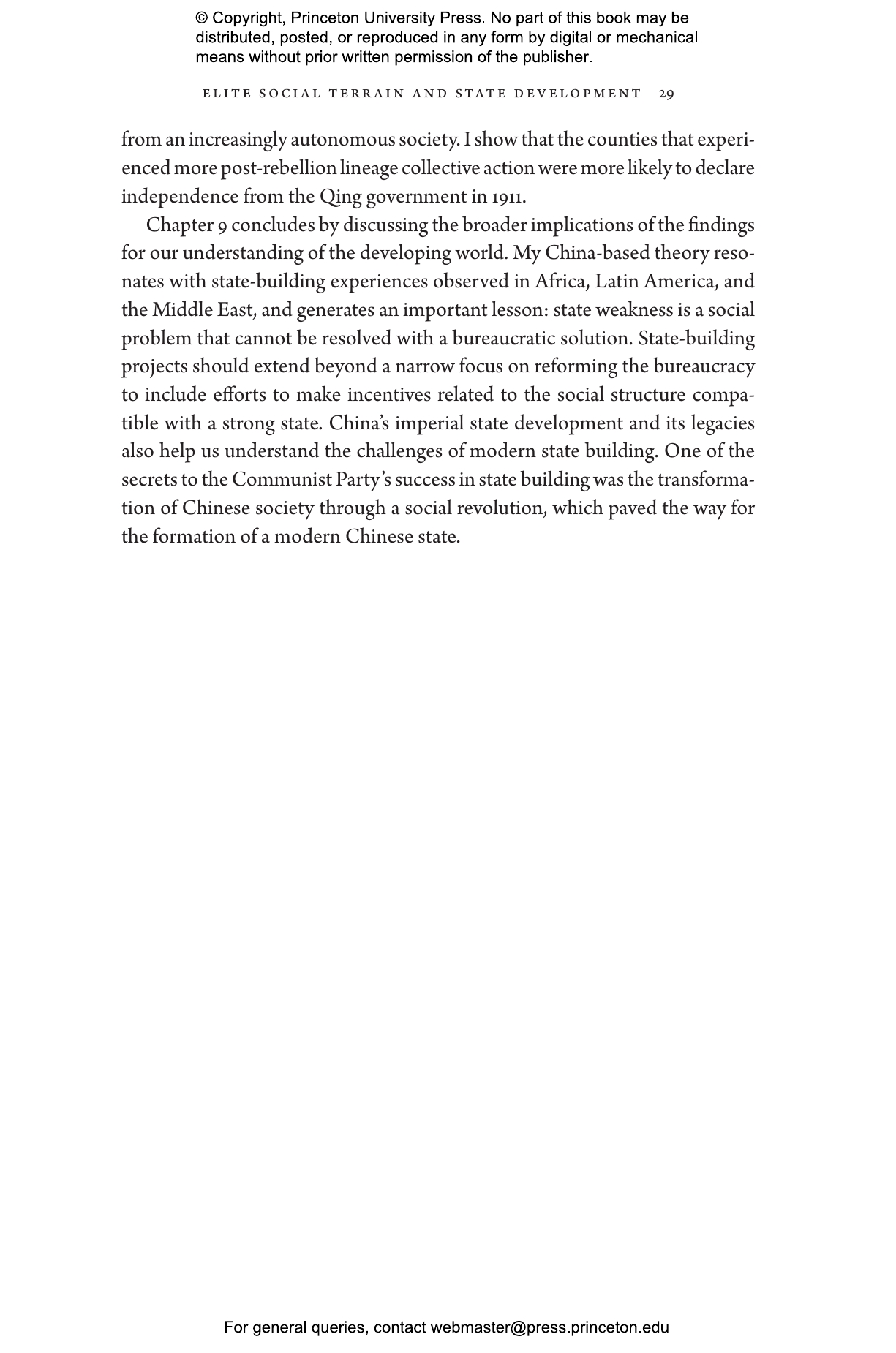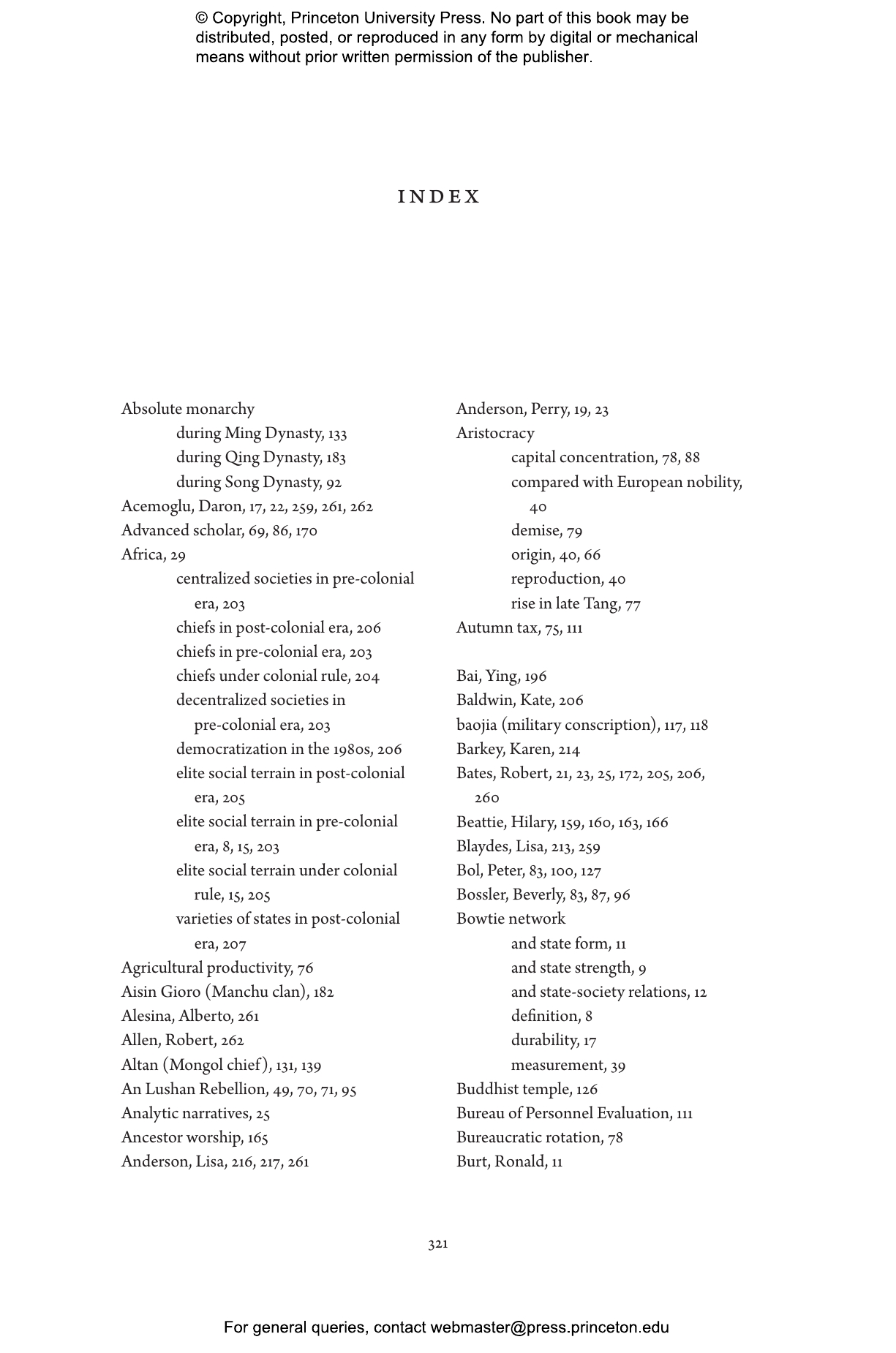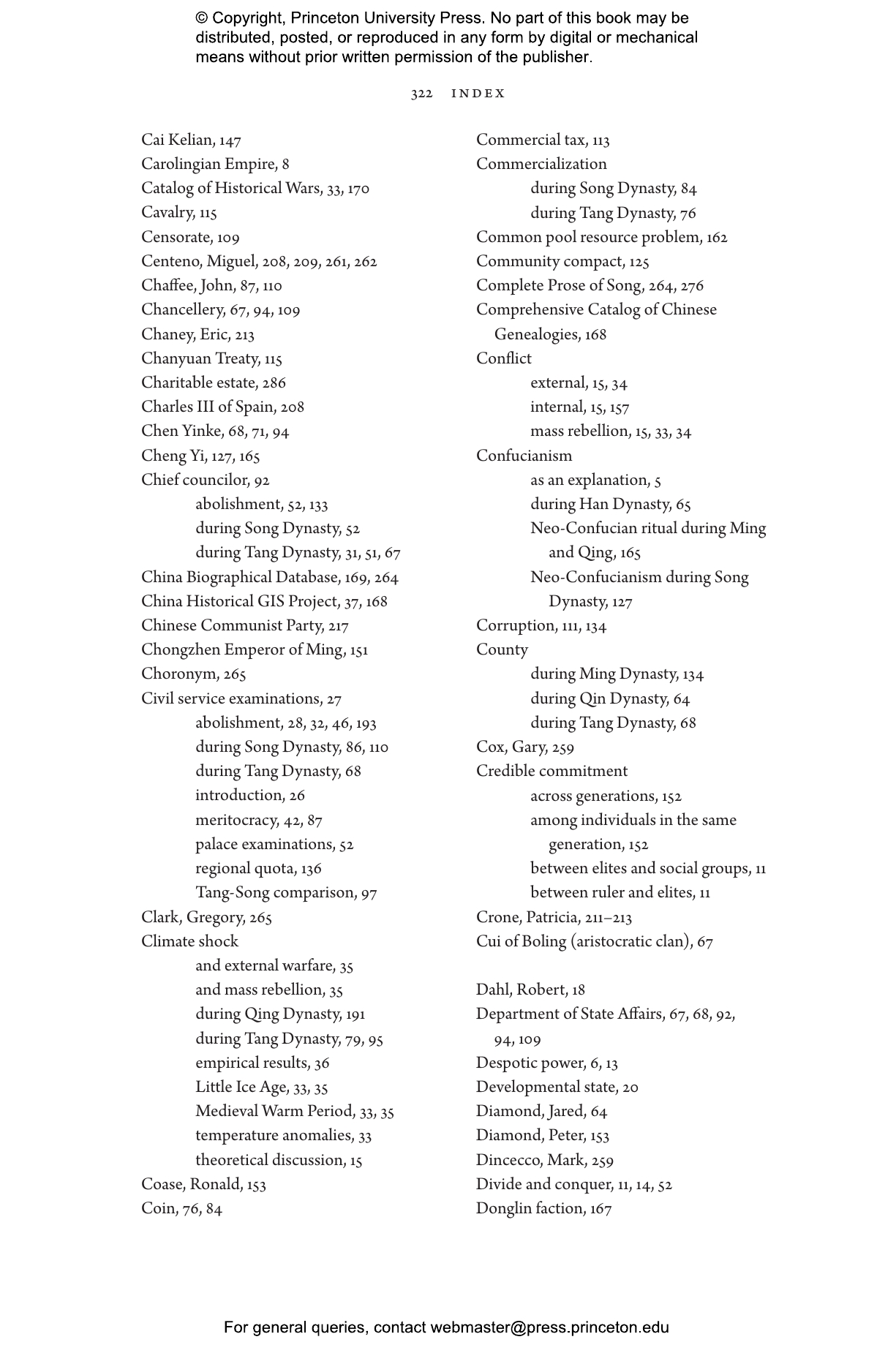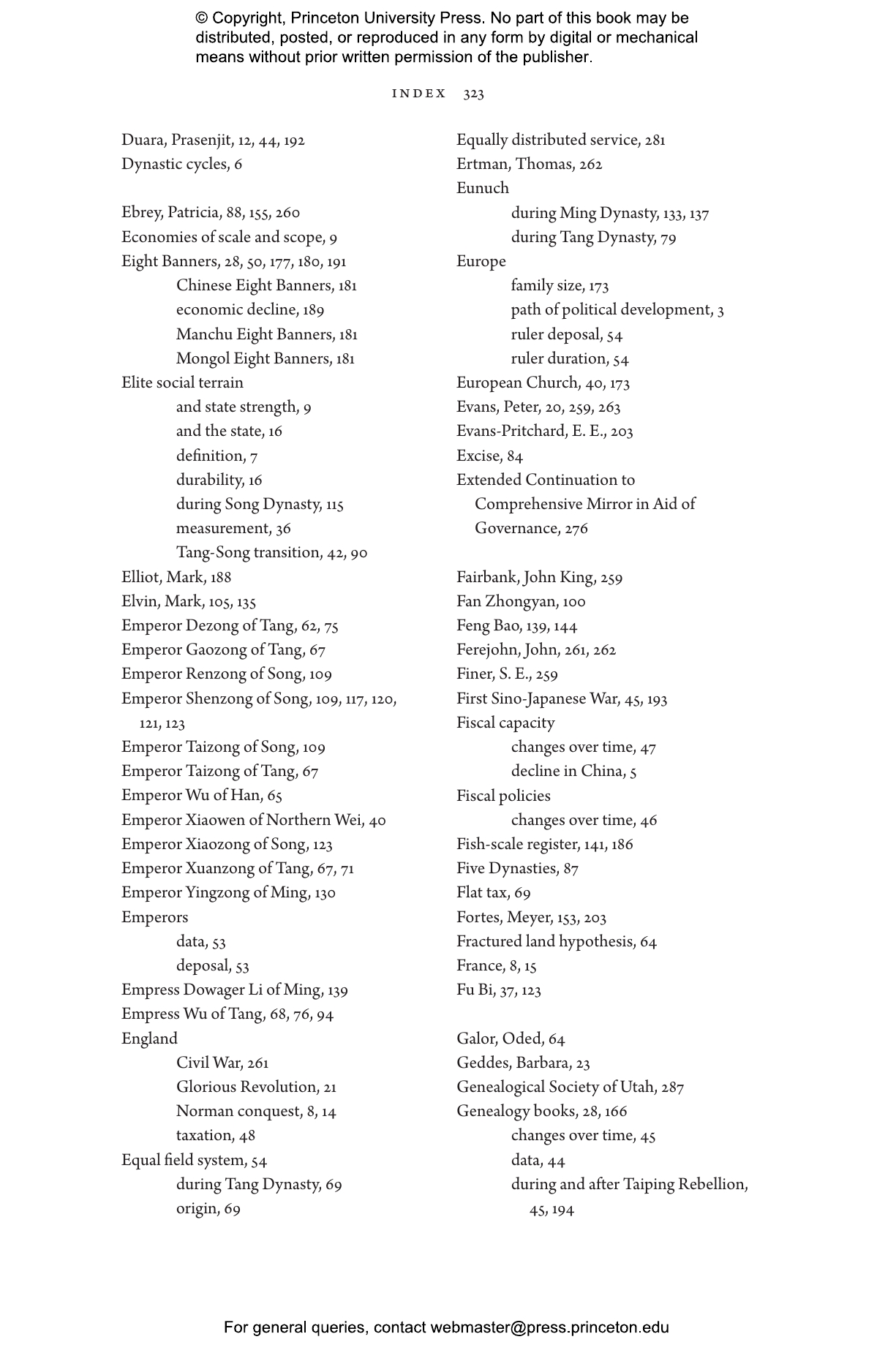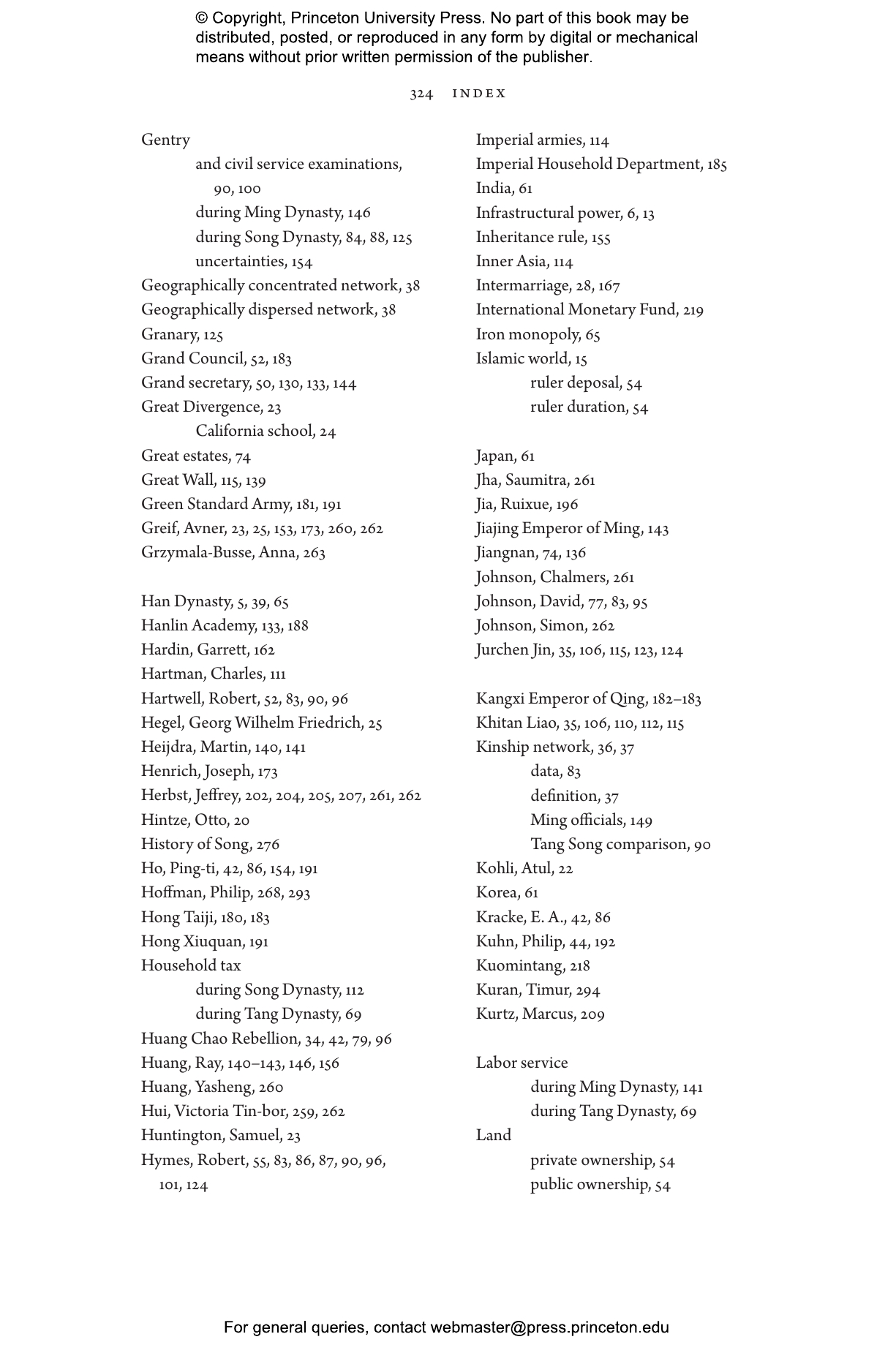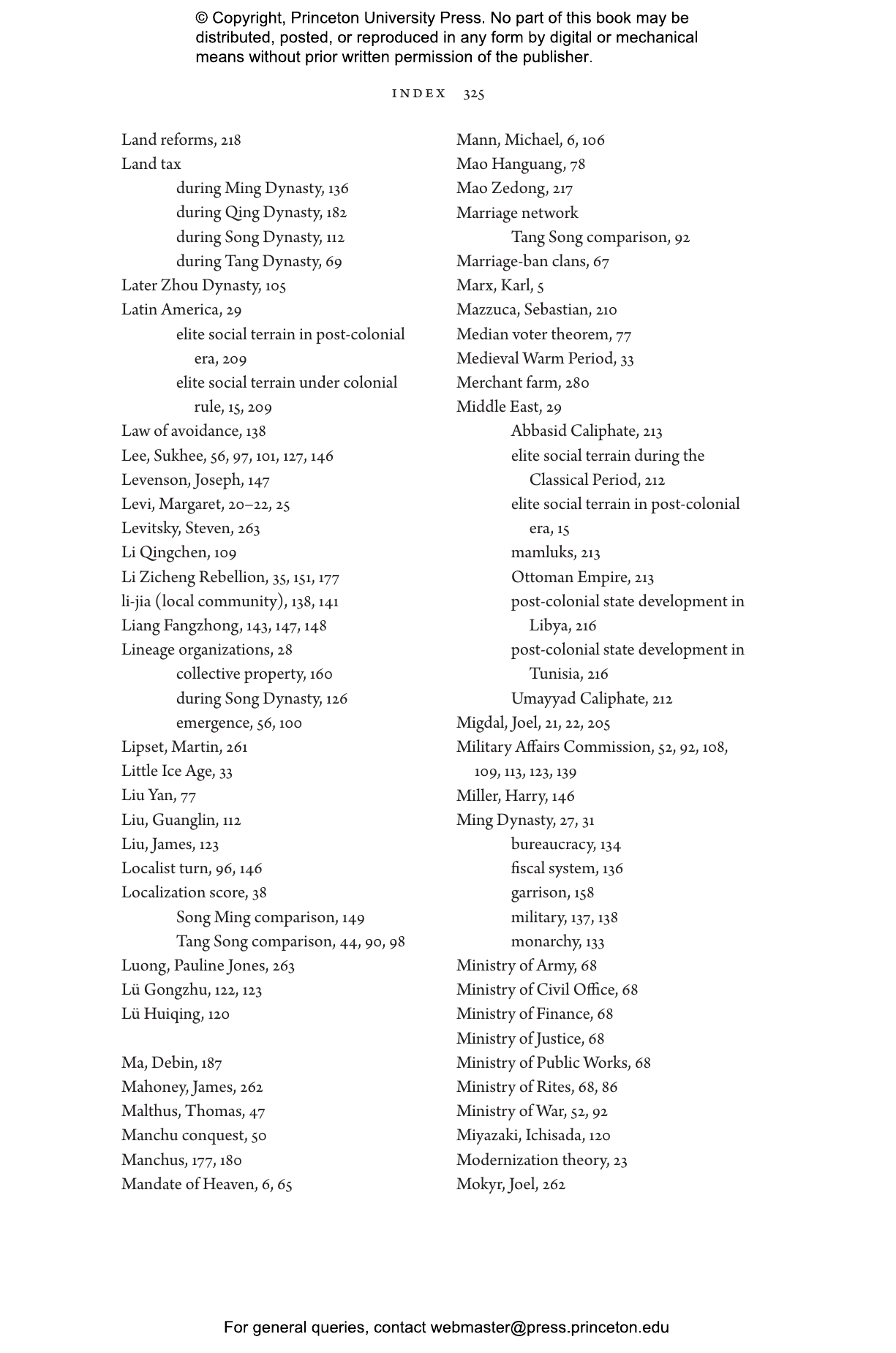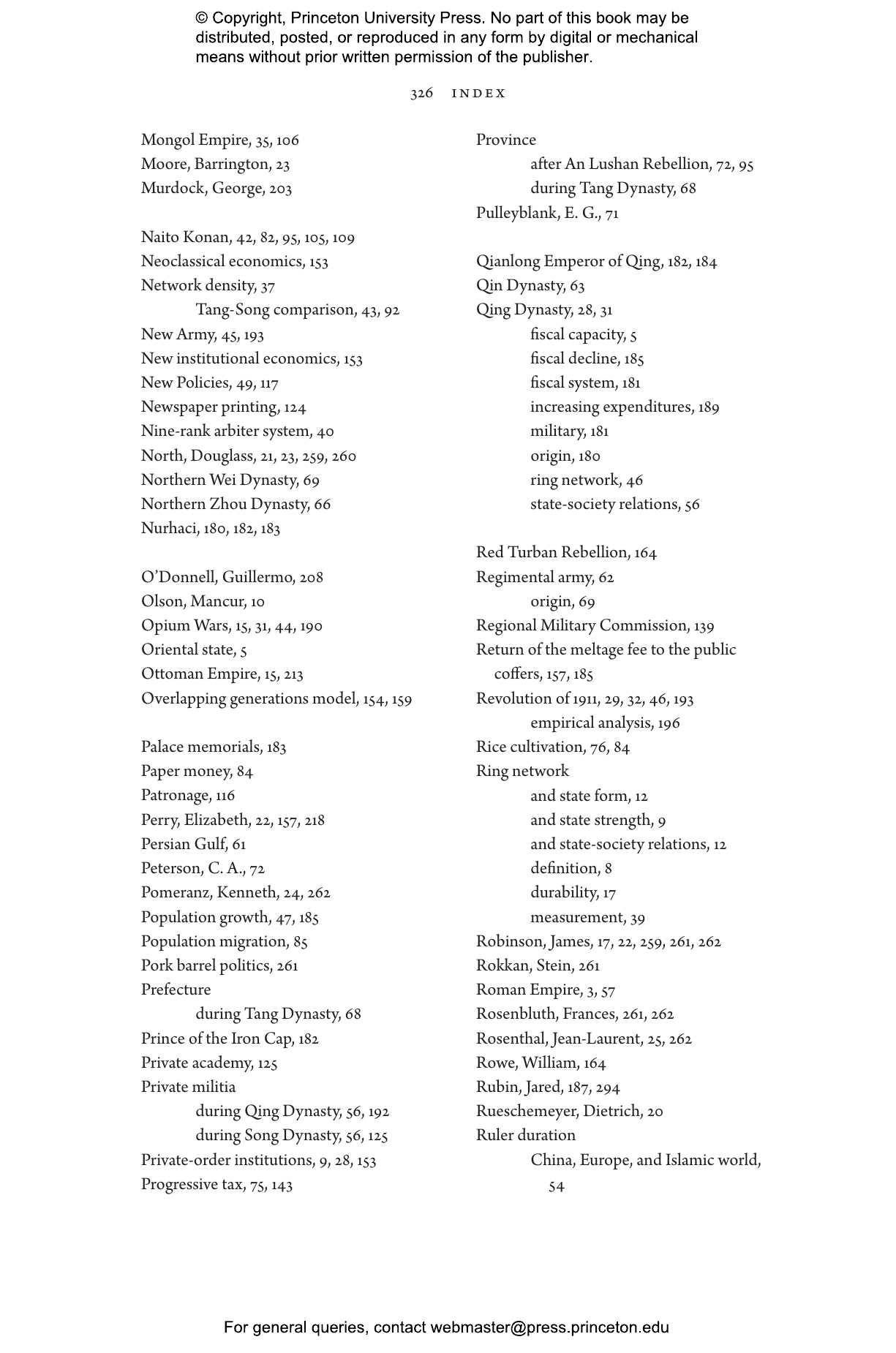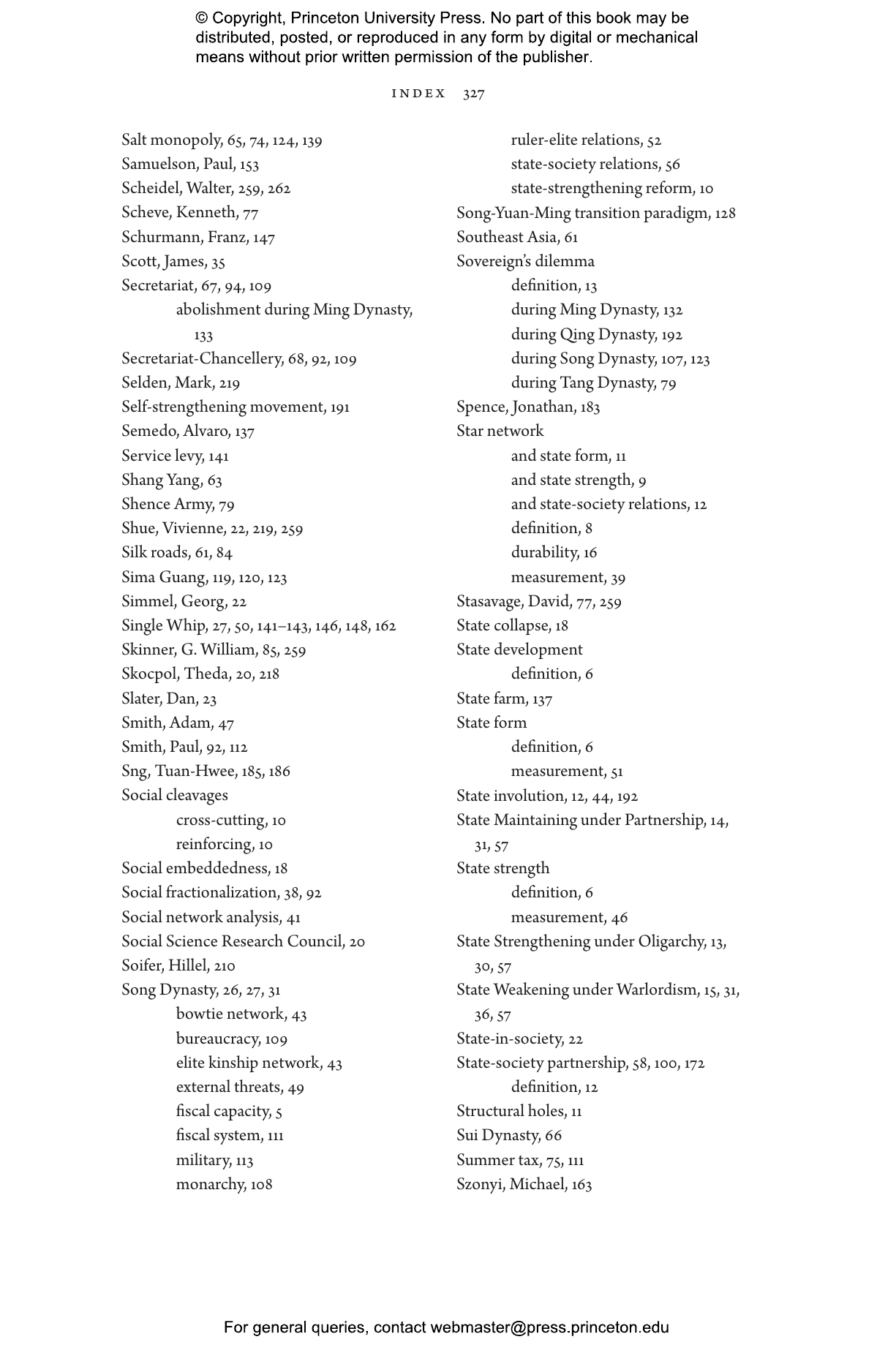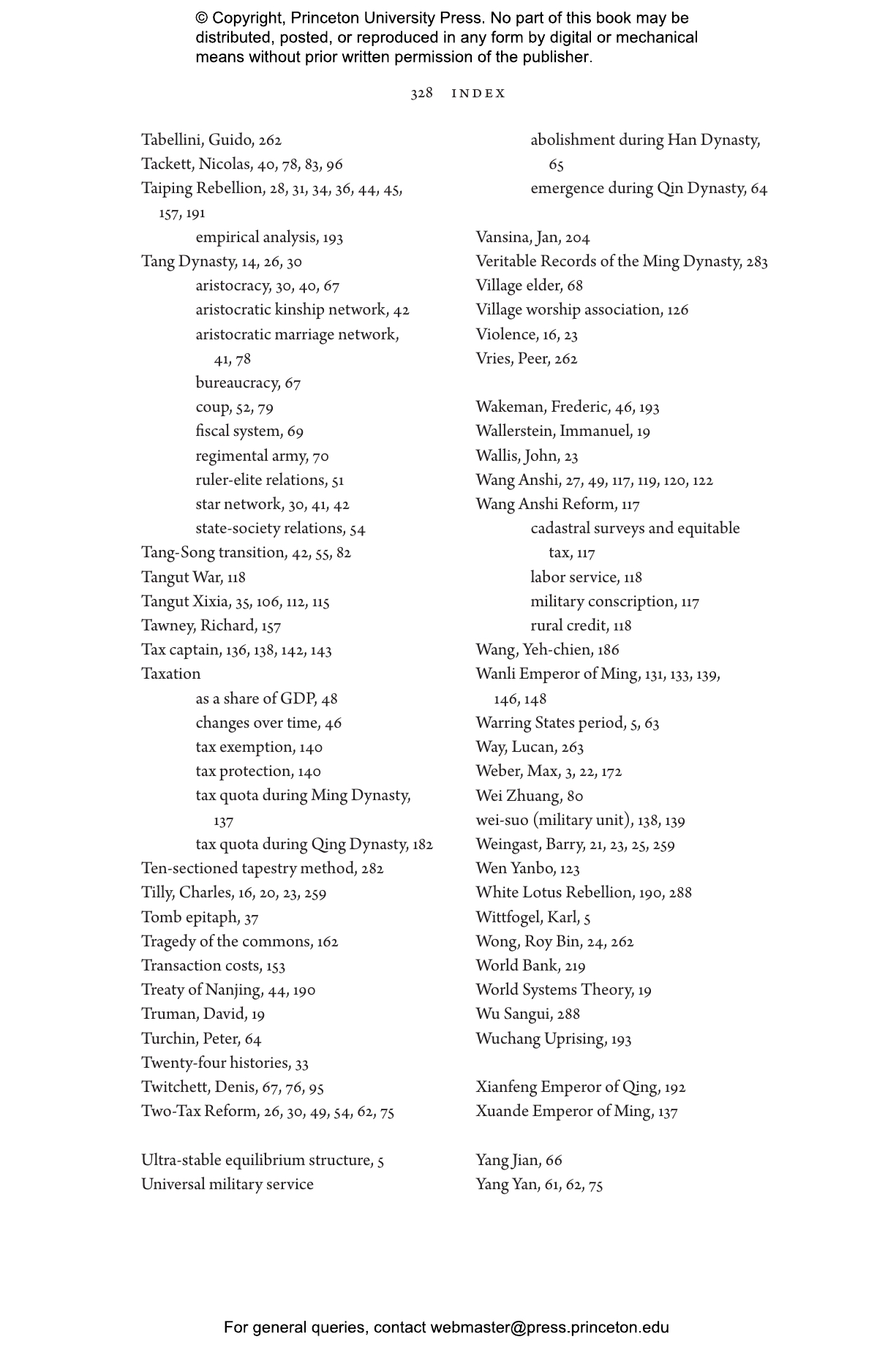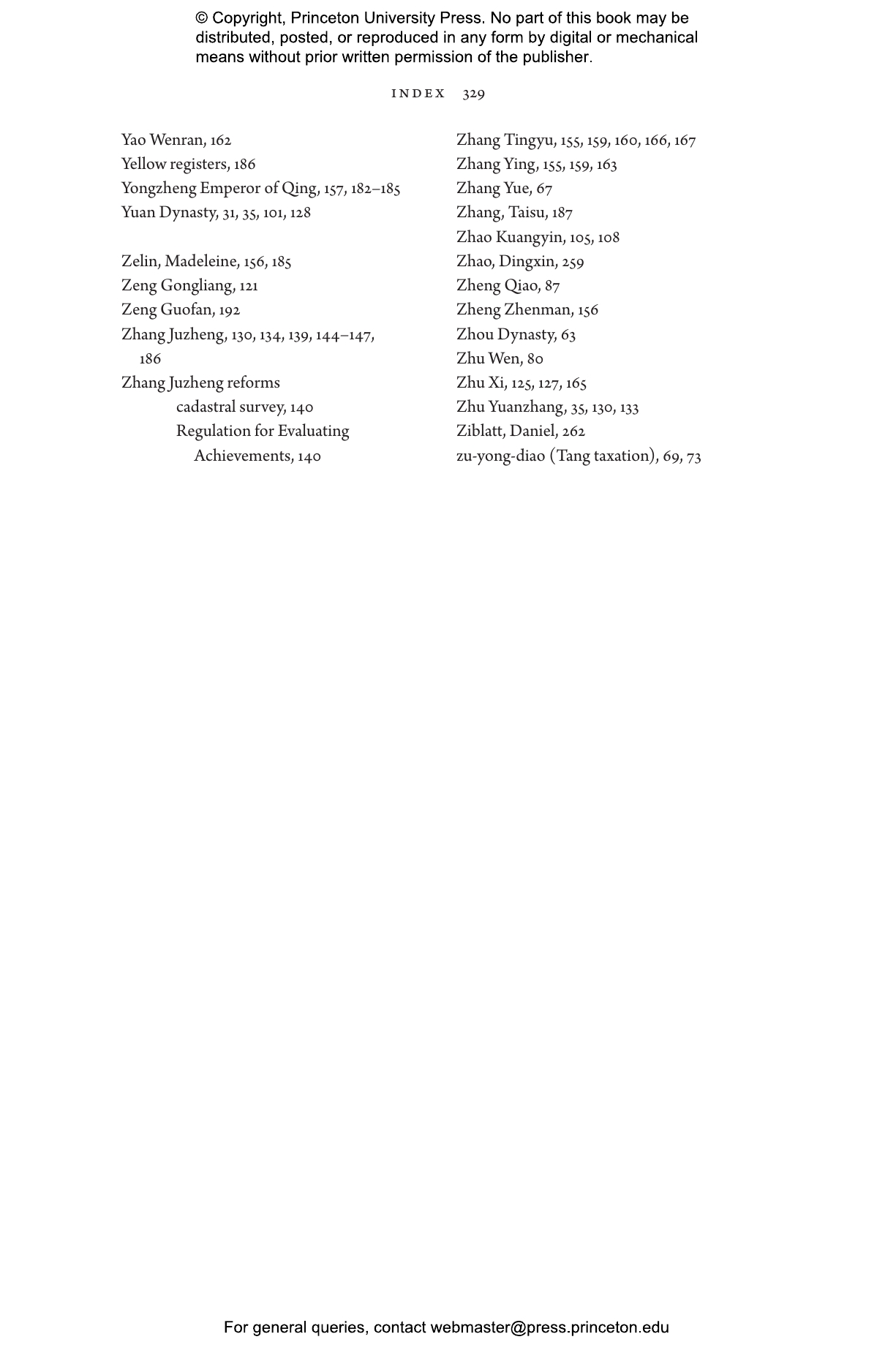China was the world鈥檚 leading superpower for almost two millennia, falling behind only in the last two centuries and now rising to dominance again. What factors led to imperial China鈥檚 decline? The Rise and Fall of Imperial China offers a systematic look at the Chinese state from the seventh century through to the twentieth. Focusing on how short-lived emperors often ruled a strong state while long-lasting emperors governed a weak one, Yuhua Wang shows why lessons from China鈥檚 history can help us better understand state building.
Wang argues that Chinese rulers faced a fundamental trade-off that he calls the sovereign鈥檚 dilemma: a coherent elite that could collectively strengthen the state could also overthrow the ruler. This dilemma emerged because strengthening state capacity and keeping rulers in power for longer required different social networks in which central elites were embedded. Wang examines how these social networks shaped the Chinese state, and vice versa, and he looks at how the ruler鈥檚 pursuit of power by fragmenting the elites became the final culprit for China鈥檚 fall.
Drawing on more than a thousand years of Chinese history, The Rise and Fall of Imperial China highlights the role of elite social relations in influencing the trajectories of state development.
Awards and Recognition
- Winner of the Luebbert Best Book Award, Comparative Politics Section of the American Political Science Association
Yuhua Wang is the Frederick S. Danziger Associate Professor in the Department of Government at Harvard University. He is the author of Tying the Autocrat’s Hands: The Rise of the Rule of Law in China.
"A profound examination. . . . [and] a remarkable piece of scholarship."鈥擯eng Peng, The Developing Economies
"Compelling. . . . [The Rise and Fall of Imperial China] is essential reading for scholars of the Chinese state."鈥擥uillaume Beaud, The International Spectator
"Yuhua Wang’s The Rise and Fall of Imperial China is a rare example of longue dur茅e history that manages to maintain theoretical clarity and logical rigor throughout its analysis. Paired with a serious quantitative dive into primary sources and the intellectual vision to tease out common sociopolitical patterns across enormously diverse historical terrain, the book is a magnificent accomplishment that produces an intellectually powerful macronarrative about mid- and late imperial Chinese history"鈥擳aisu Zhang, American Historical Review
"A very innovative study that injects a plethora of fresh data and new insights into the evolution of the imperial Chinese state."鈥擩ustin M. Jacobs, H-Diplo
"Engaging and illuminating."鈥擭icolas Tackett, Journal of Chinese History
“This rigorous and innovative examination of the state in China shows how states can be durable even when they are weak. Yuhua Wang’s analysis of how elite networks mediated the relationship between rulers and society transforms our understanding of state formation and survival.”—Anna Grzyma艂a-Busse, author of Sacred Foundations
“The Rise and Fall of Imperial China offers up a readable, persuasive, and provocative account of state success and failure that taps into major debates in social science and history. Ambitious, wide-ranging, and theoretically innovative, this superb book makes important contributions to the literatures on state building, historical political economy, and Chinese politics.”—Daniel Mattingly, author of The Art of Political Control in China
“Drawing on network theory to suggest which linkages between state and society are most likely to lead to durable rule, The Rise and Fall of Imperial China covers more than a millennia of history to suggest when and why the Chinese state was most solid. This is a most impressive work of political science.”—David Stasavage, author of The Decline and Rise of Democracy


